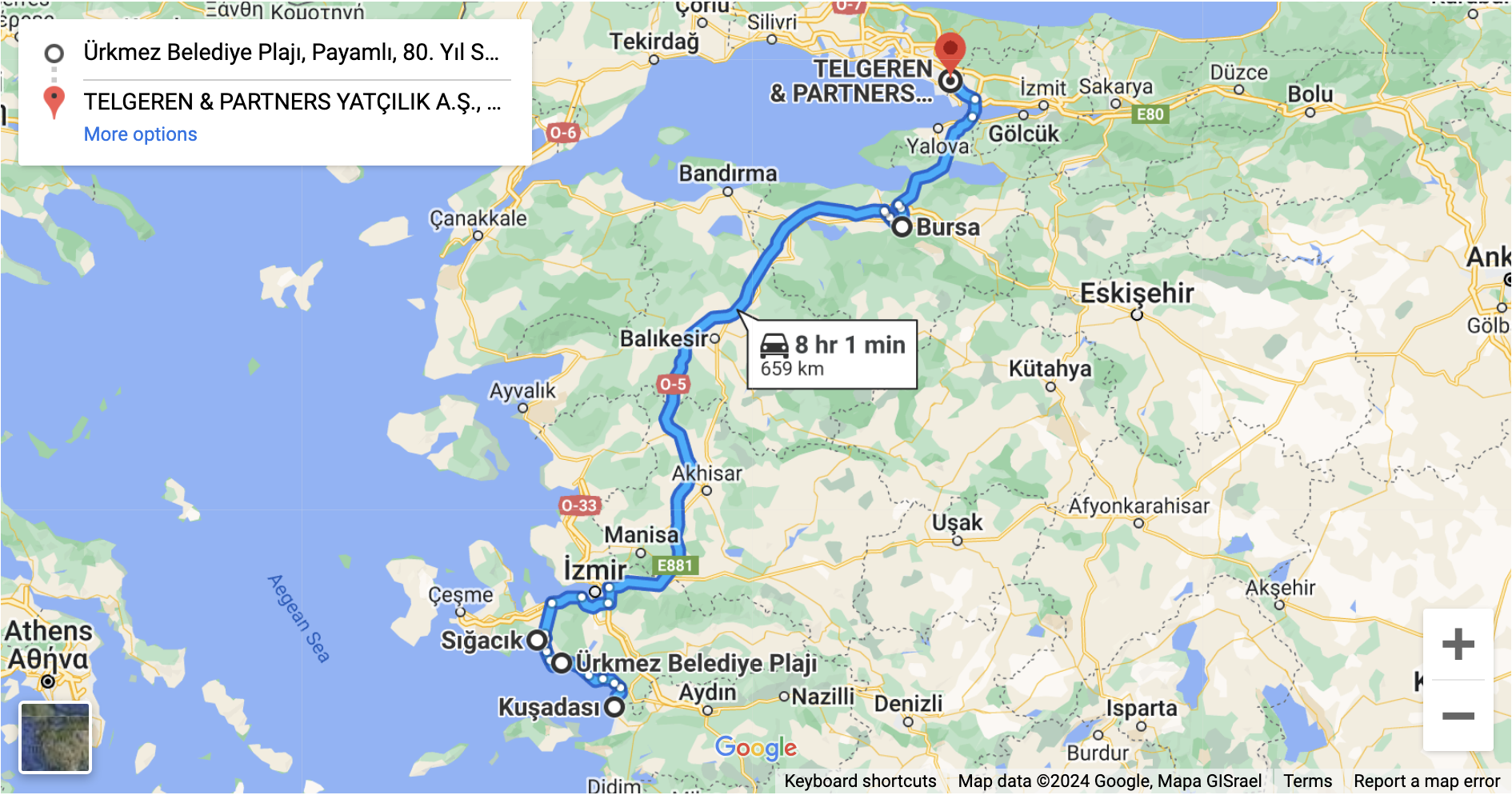Full Circle
We left Kuşadası about mid-day and stopped at an out of the way beach so I could swim in the Aegean. The horizon was sprinkled with windmills for much of the drive. Turkey increased its wind energy capacity tenfold over the last decade. The Turkish electricity mix is rapidly shifting towards renewables which now account for 43% of total electricity production. While coal and gas account for 34% and 23%, respectively, today wind energy is 10% of Turkey’s electricity mix, making it the second biggest source of renewable energy after hydro power.
We were enroute to the little town of Sığacık. Docked in the Teos Marina in Sığacık is N4106 (the 6th Nordhavn 41) which is owned by a retired Turkish couple, Murat and Halide, who had graciously invited us to lunch onboard their boat, Lima.
We arrived at the boat around 10am. The wind and seas were too rough to take the boat out that day but we were given a tour of every cabin, locker, compartment and hatch. We discussed how they use their boat (they do not live aboard full time) and what they do and don’t like about it. Over lunch we talked about everything from the engines and generator, to the light fixtures and drains. We learned about their maintenance and cleaning schedules, how they manage garbage and water, even how they prefer to make coffee, prepare meals and simply lounge.
We ended up spending the entire day with them and as the sun began to set, they took us on a stroll past the harbor and the mooring field, and on into the old castle ruins which may only be entered through a small hidden stone passageway. We exited the ruins and walked to a marina restaurant where we shared a fabulous evening over mezzes and a bottle (or two) of Raki (rah-KUH).
Lion’s Milk
Raki is the national Turkish drink made of twice-distilled grapes and aniseed, and is about 45% alcohol. It has historical origins in Anatolia dating back at least 300 years. When mixed with ice and/or a splash of water, it turns milky white. Because of its color and mighty alcoholic punch, Turks call it lion’s milk. It is serious business in Turkey. It's the go-to spirit for every occasion (or no occasion at all) and it is said to have the mysterious power to open up even the most reserved person. Naturally, I can’t vouch for that, but I can say that the raki meals I’ve partaken of began with the gentle subjects of work and daily life and a chilled glass or two of raki later and the conversation moves on to matters of the heart. Mezzes and raki are perfect culinary companions and the Turks will often nosh on them long into the night. The evening with our new friends ended around 11pm by which time we had been invited to go wine tasting with them the next day!
We slept in that next morning and met up again on Lima at around 1pm. Wine is not the first thing that comes to mind when people think of Turkey, but with thousands of years of winemaking history, more than 100 wineries, and some 1200 native grape varieties, that may be changing. Wine tourism is still largely unexplored in Turkey due in part to the fact that advertising alcohol is illegal. This means advertising wine tastings in tourism brochures is also prohibited. Wineries get around that by advertising “vineyard tours” instead.
We spent the afternoon exploring the vineyards - and tasting wine. We then took a beautiful drive through a huge arboretum and ended up enjoying the sunset over happy hour (more wine and simple appetizers) at our hosts’ gorgeous home on the hillside overlooking the town of Urla. They have a stunning garden and grow things I’d never seen before. There are orange and pomegranate trees, and olives of course, but also cinnamon trees and cork trees! The grounds are immaculate and mowed by 3 robots which thrill Murat to no end!
The day ended back at the marina restaurant for another outstanding dinner. I cannot express how deeply grateful I am to have shared this time with them. It is so endearing to be in the company of people whose reasoning, practicality and logic is married beautifully with their self reflection and intuition, and who share their heartfelt perceptions so openly and lovingly. They are genuine, authentic, salt of the earth people whose friendship I value greatly.
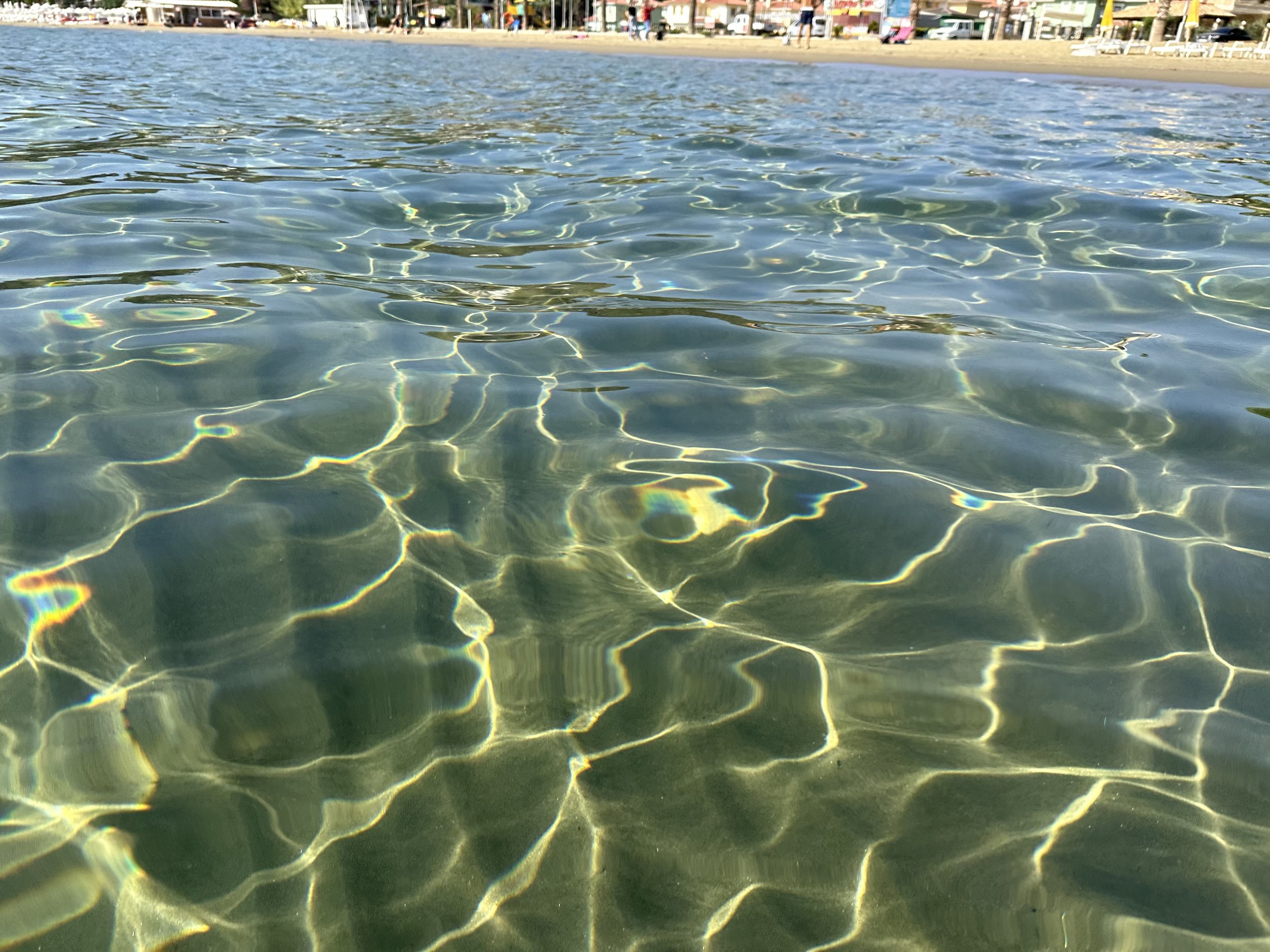
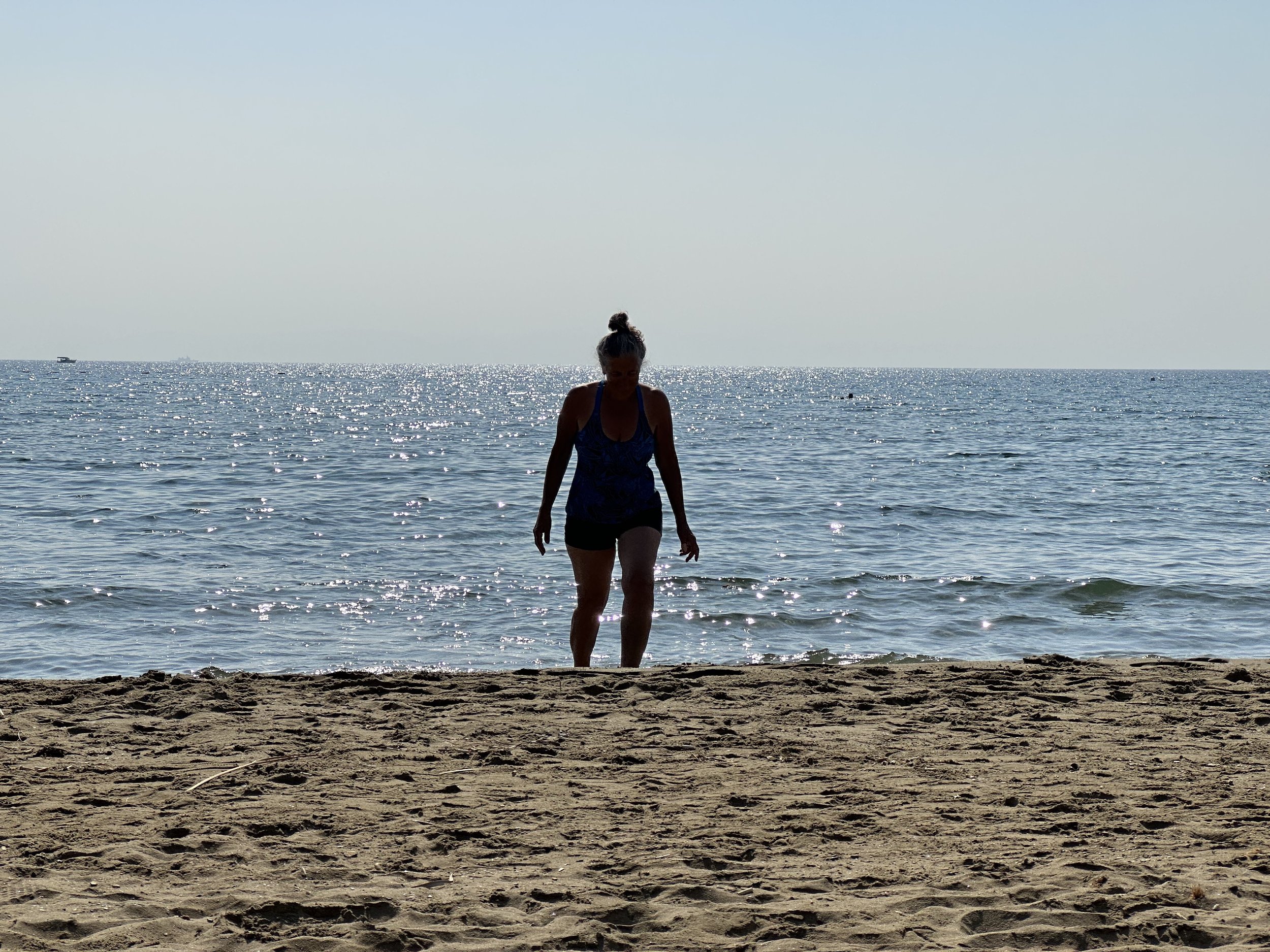
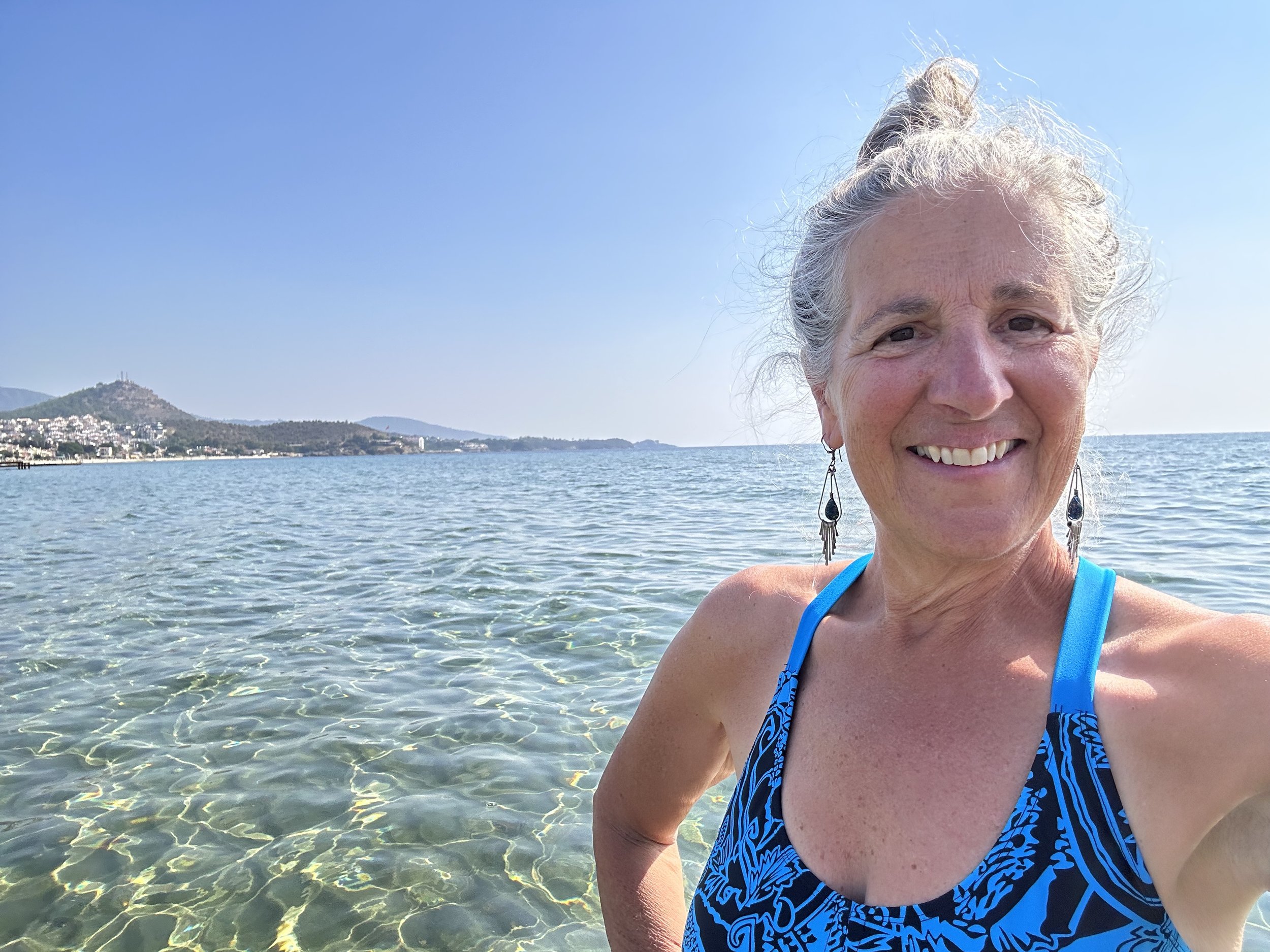
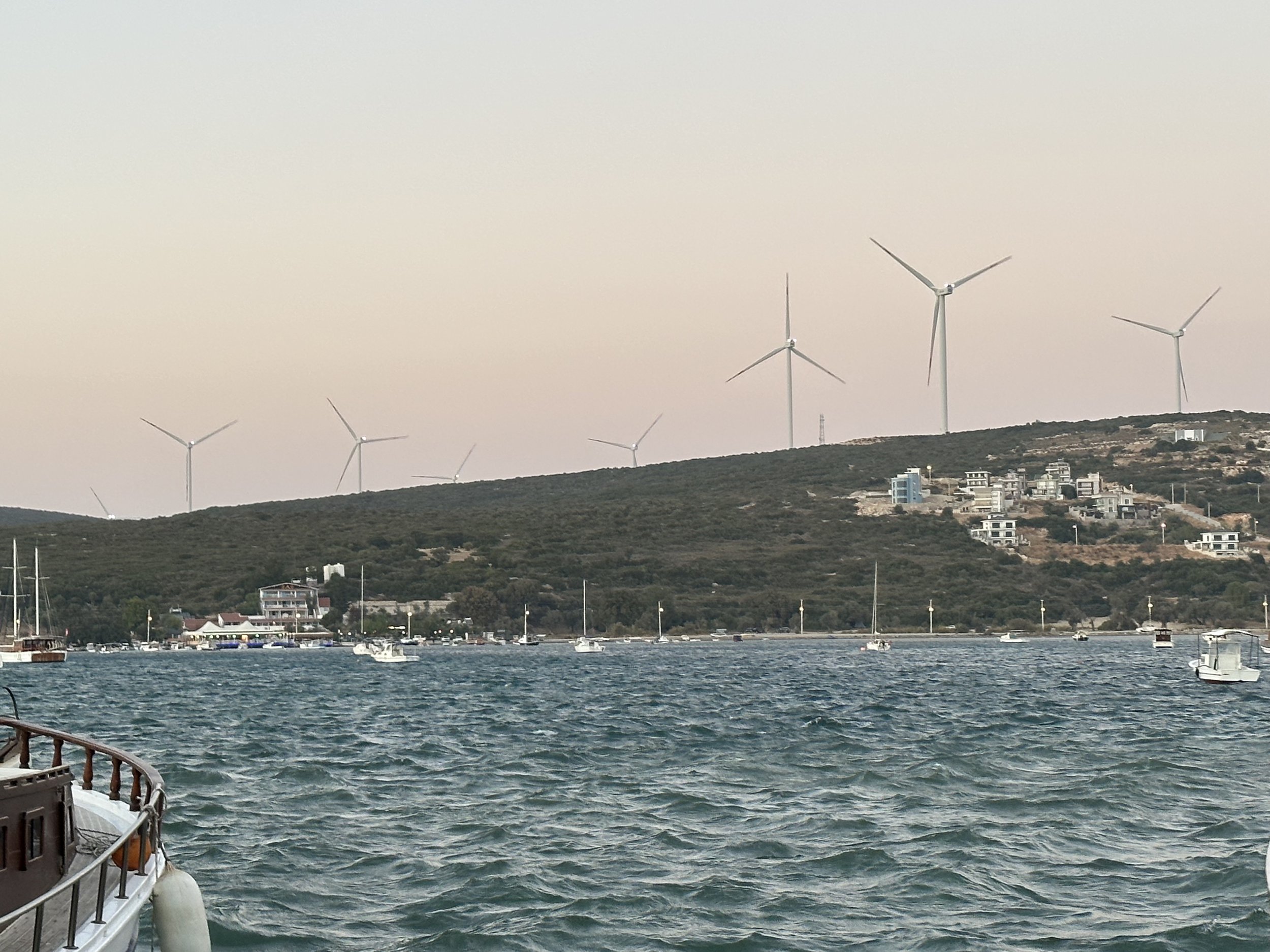
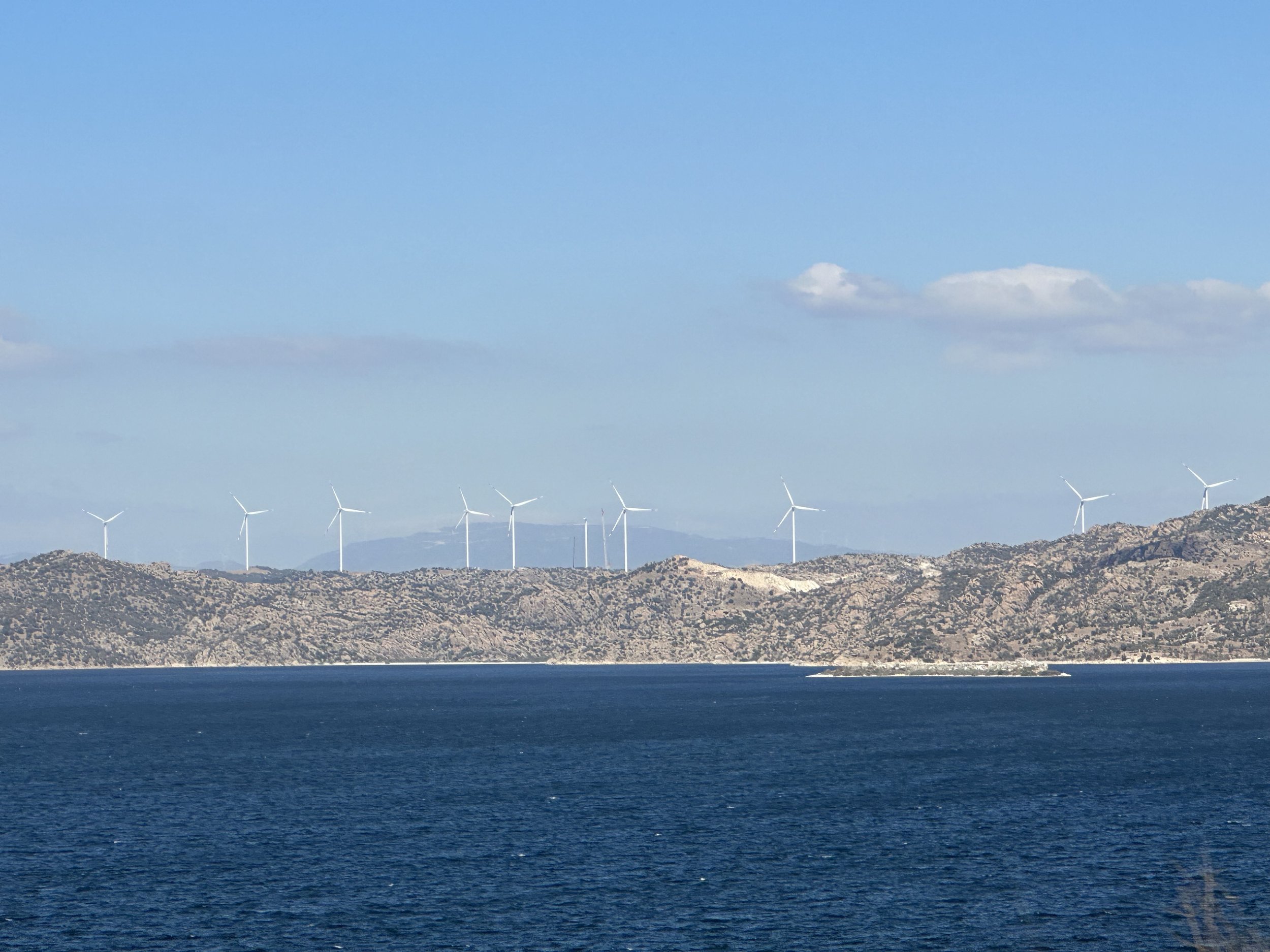
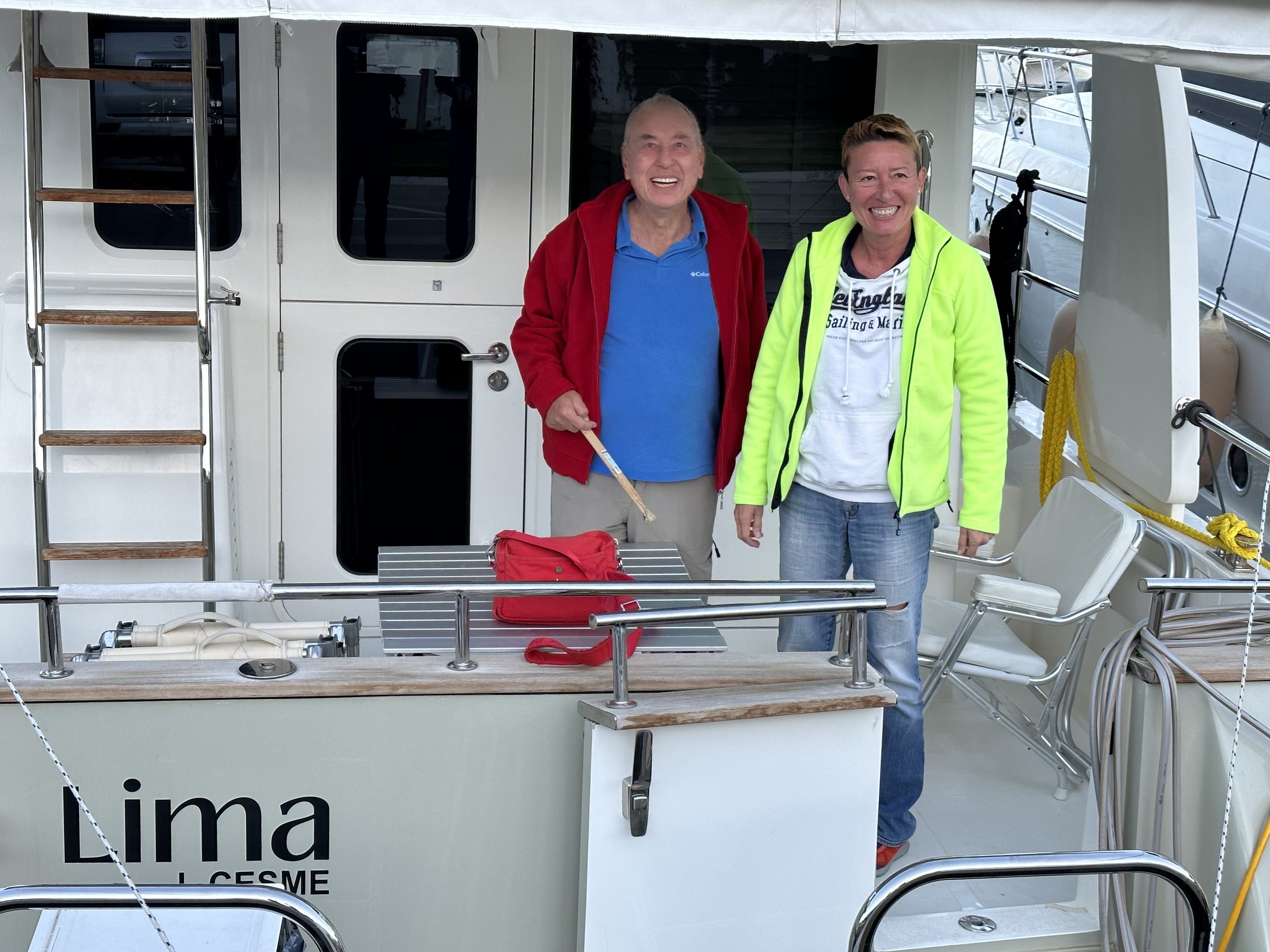
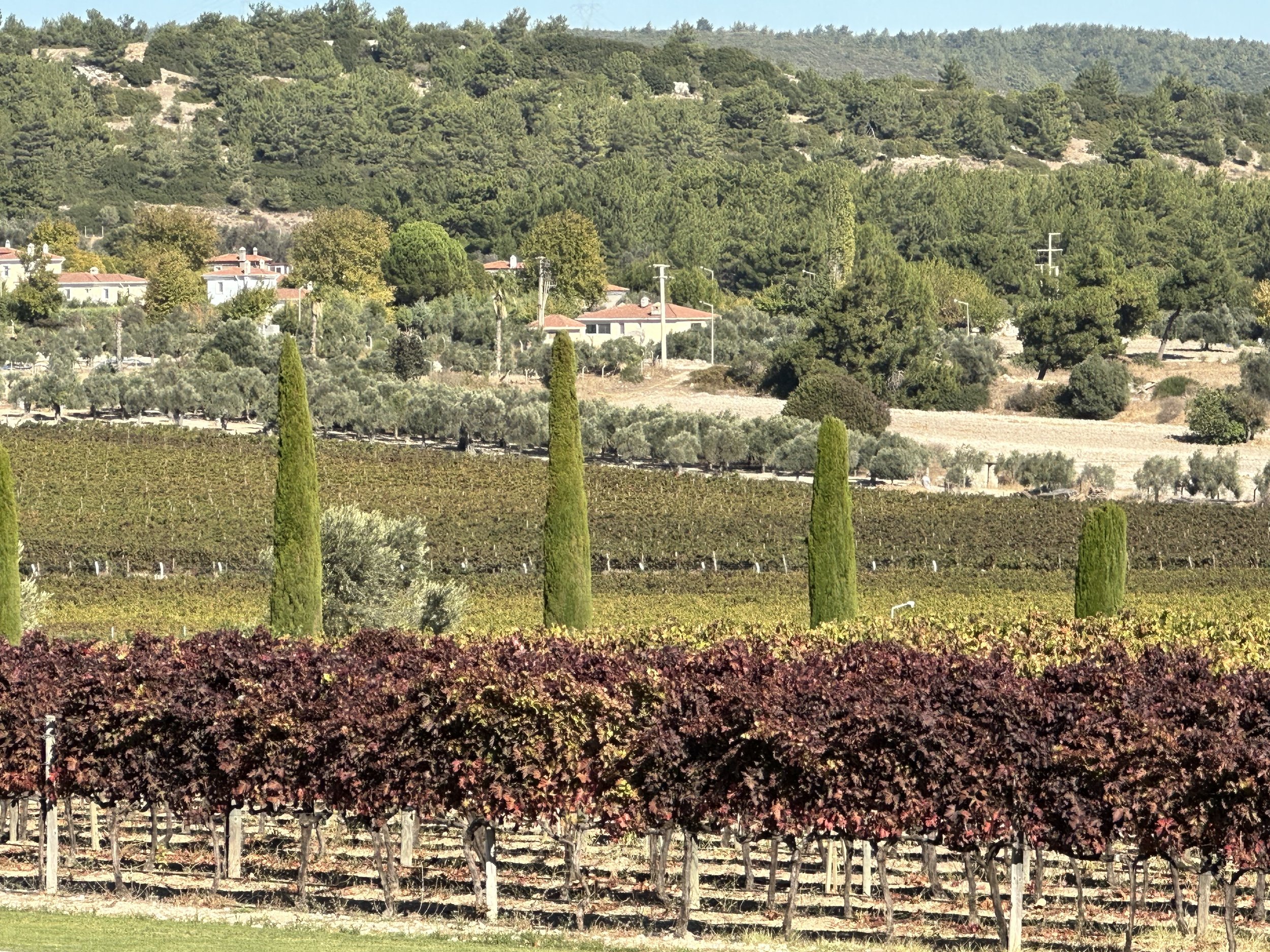
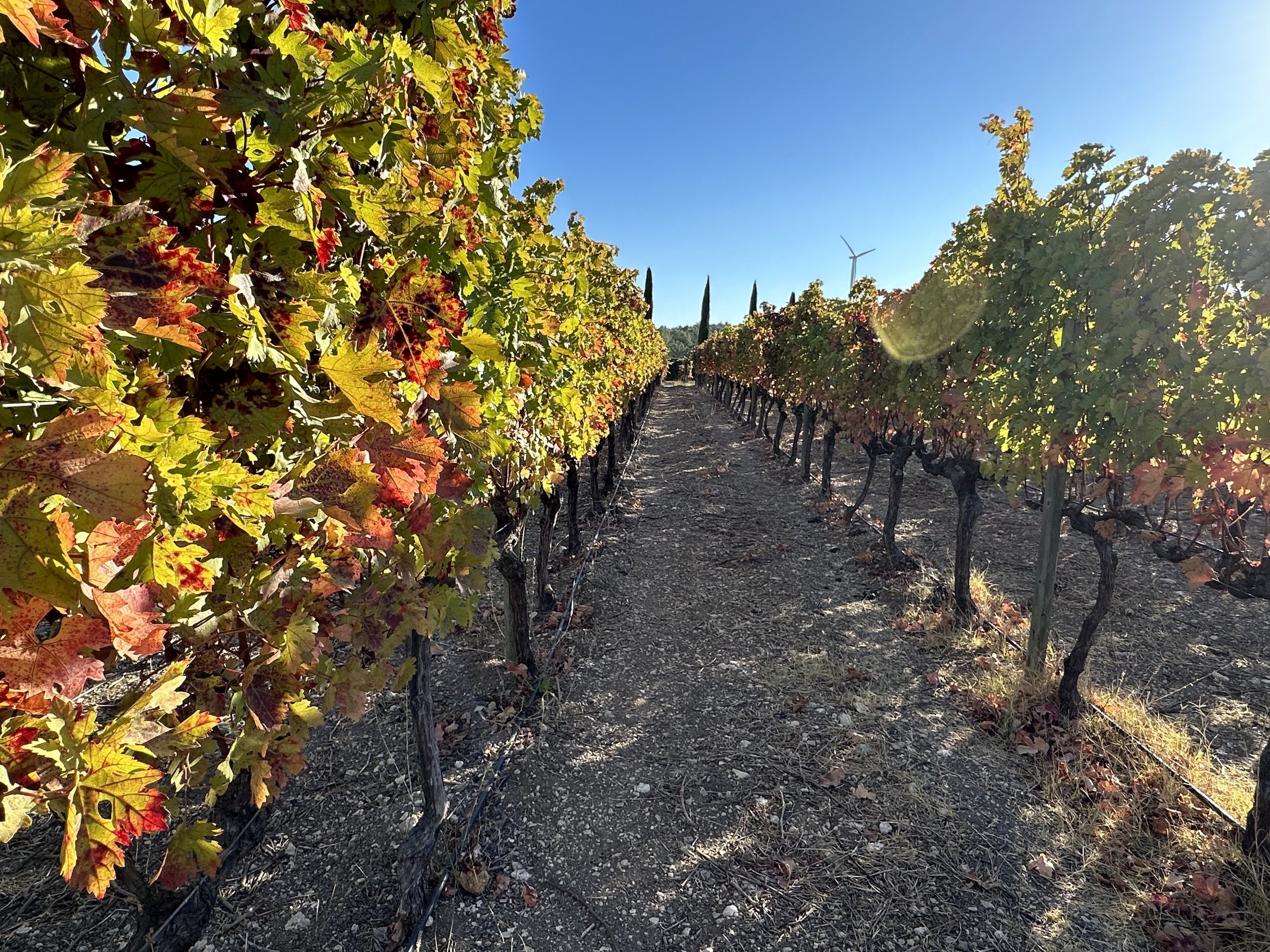
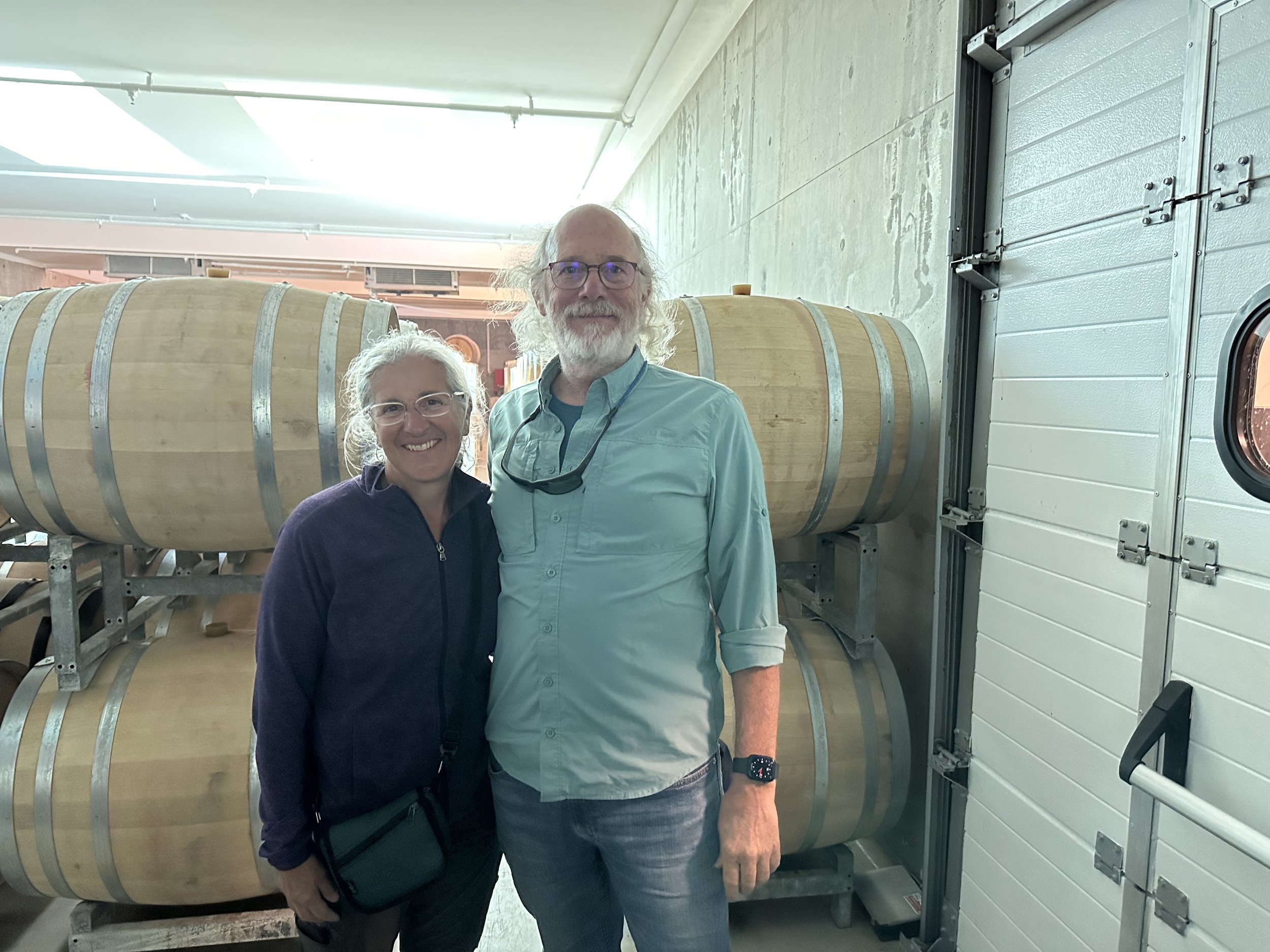
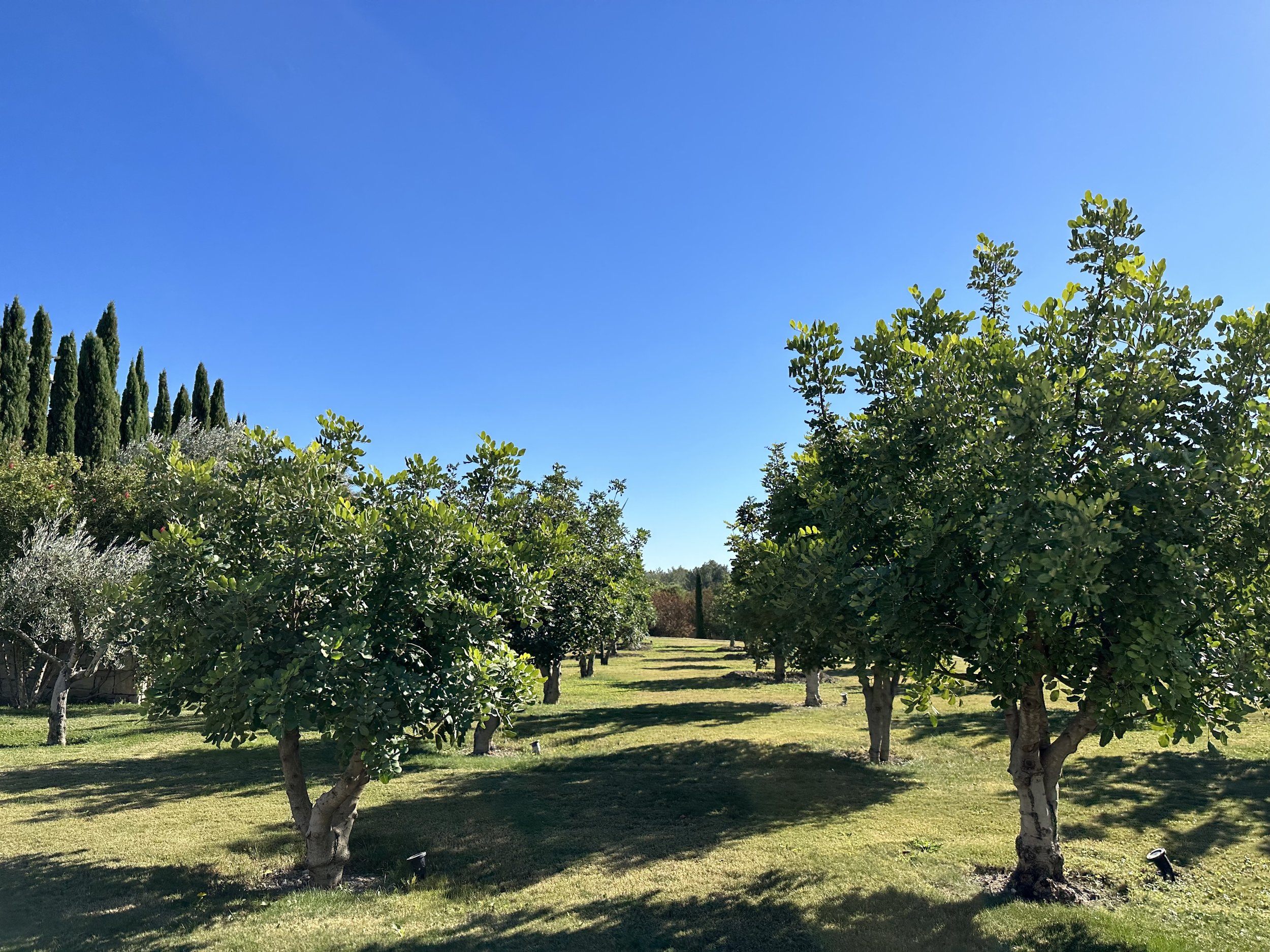
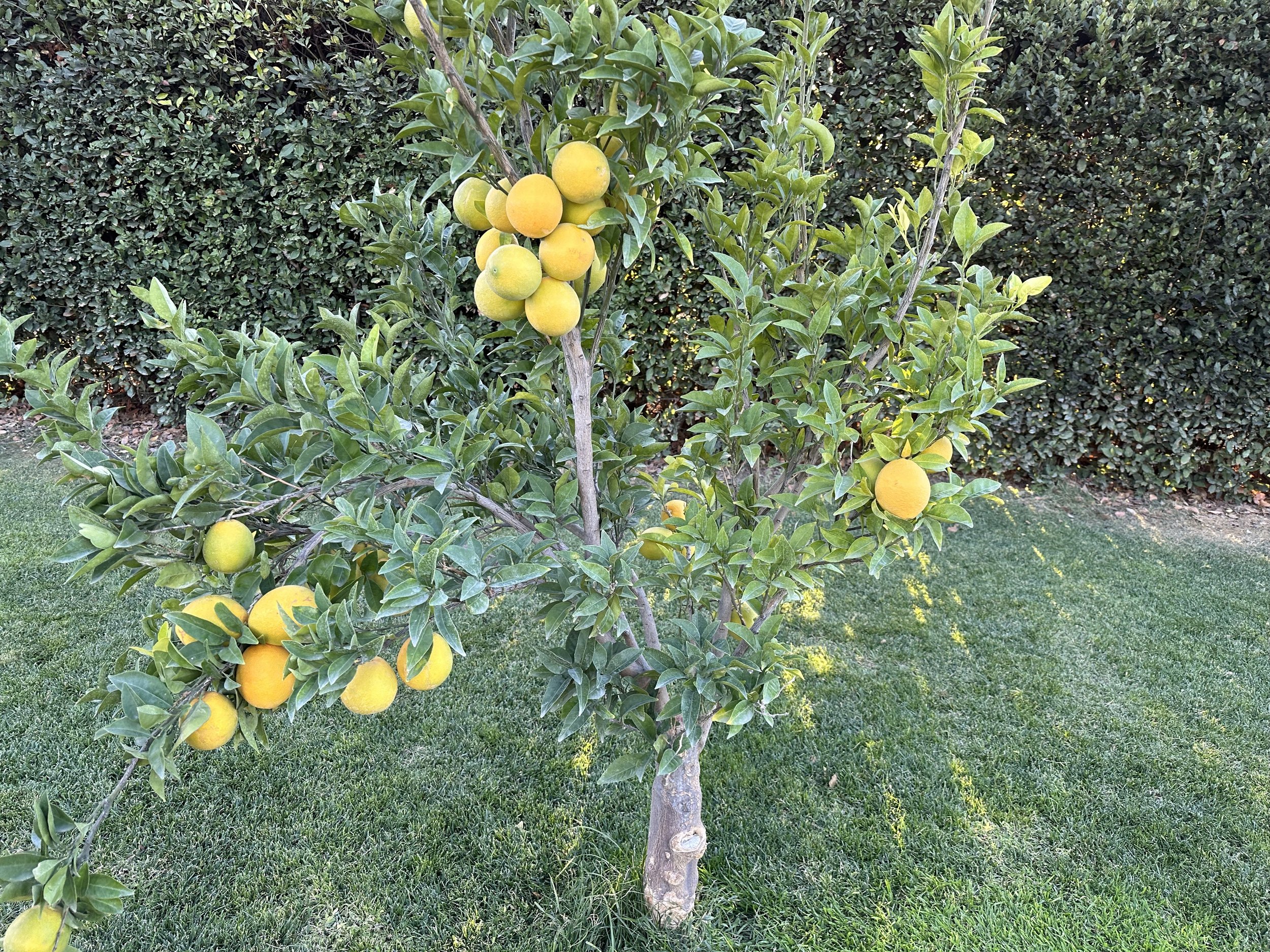
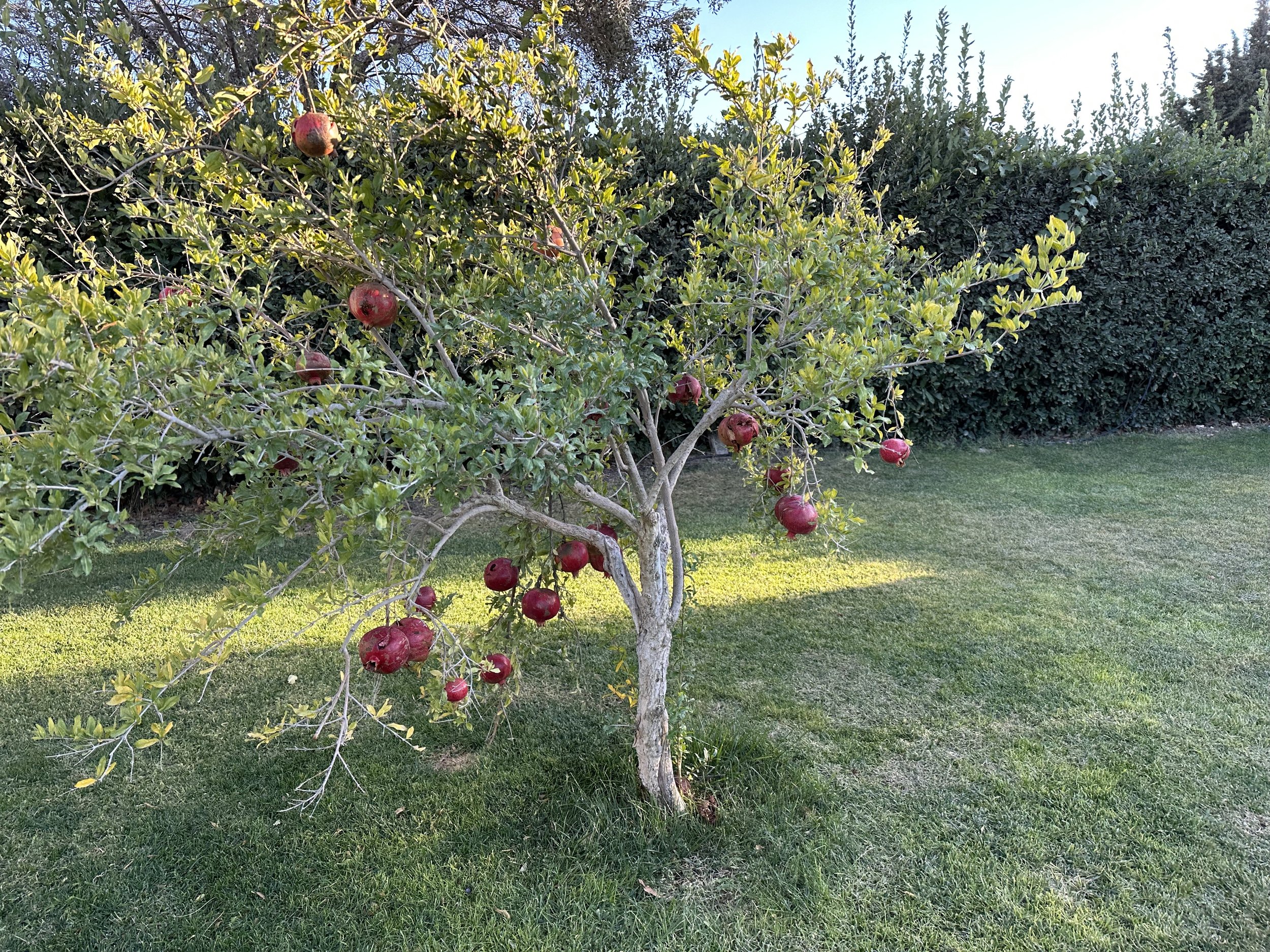
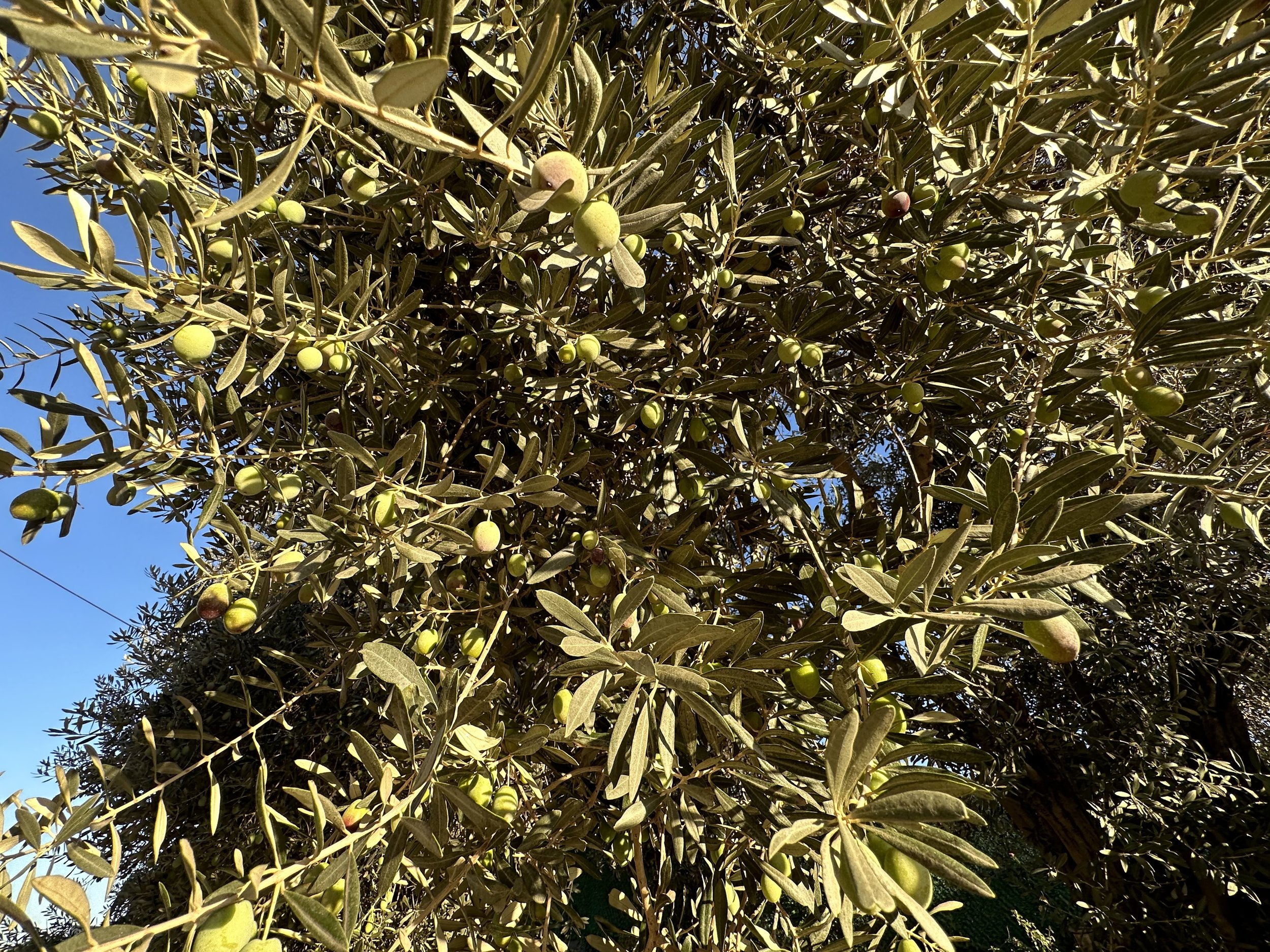
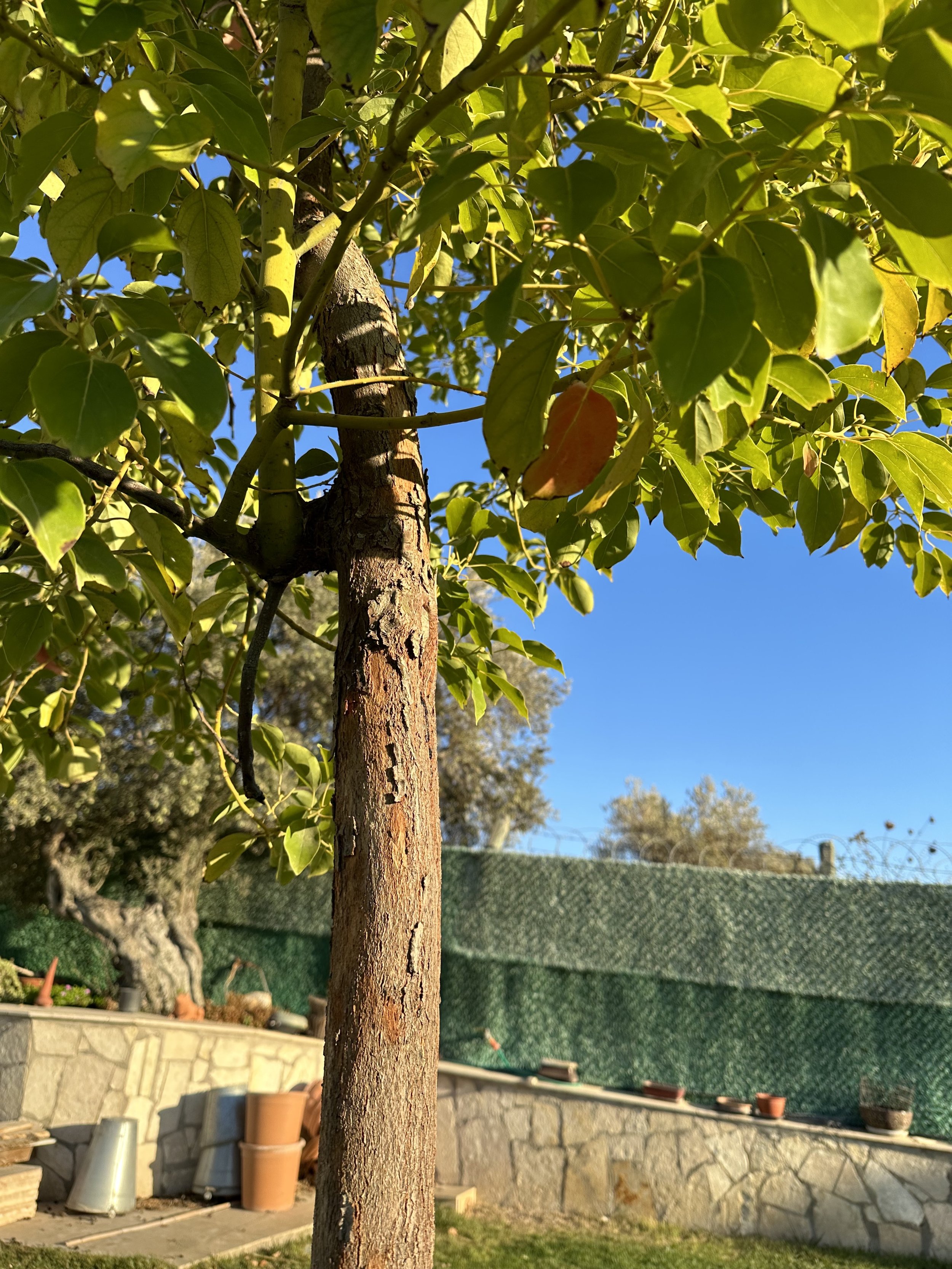
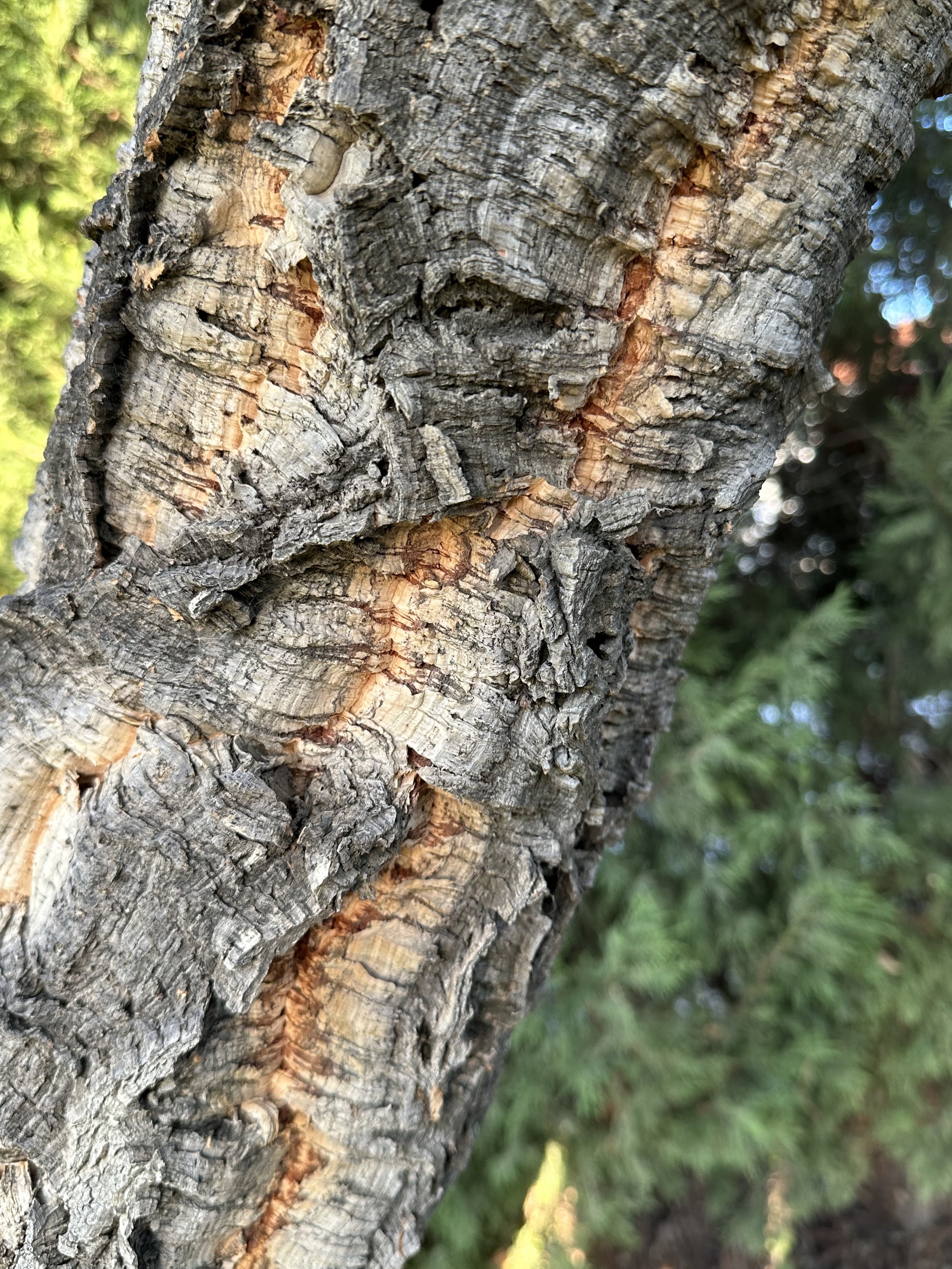
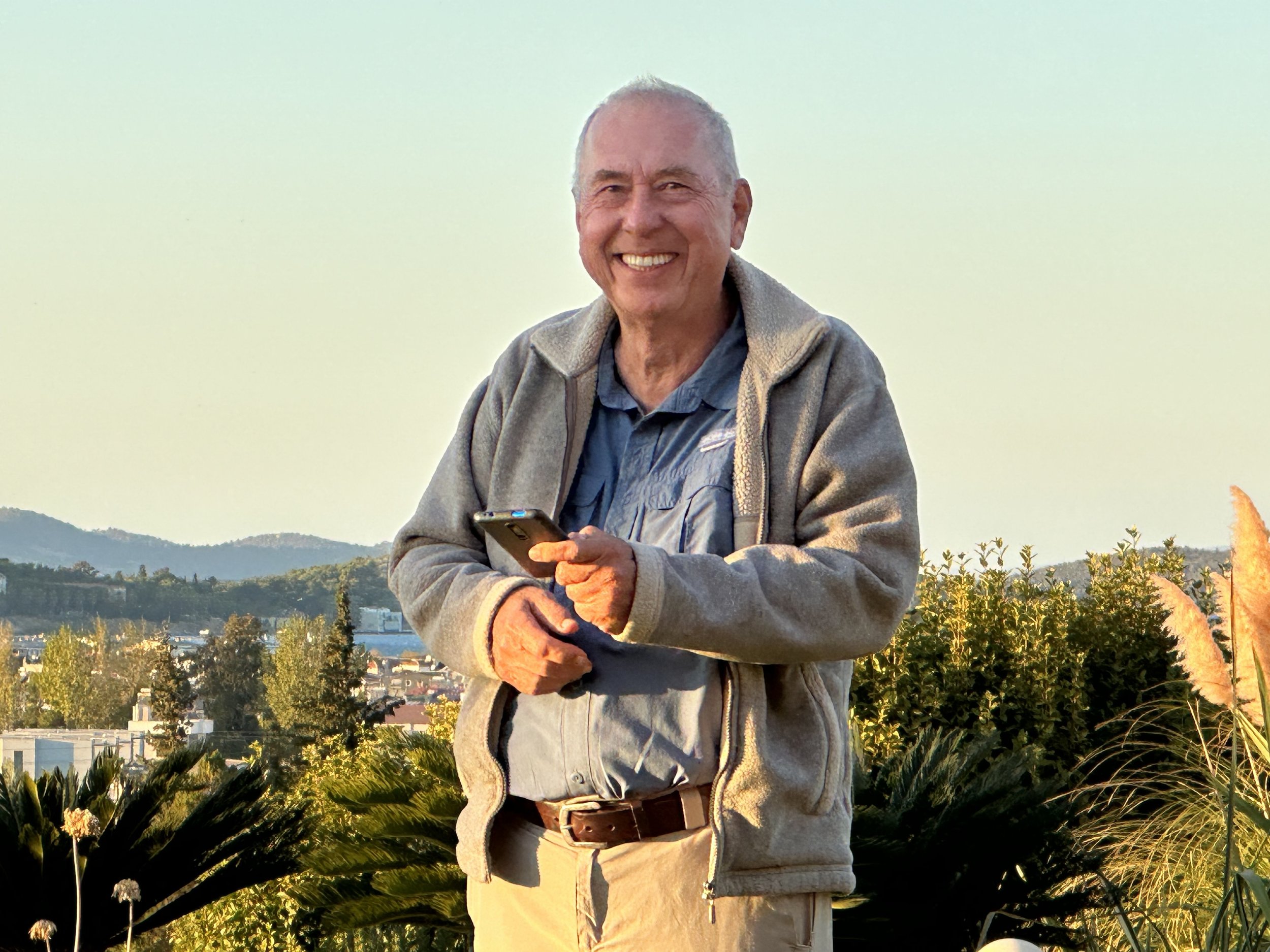

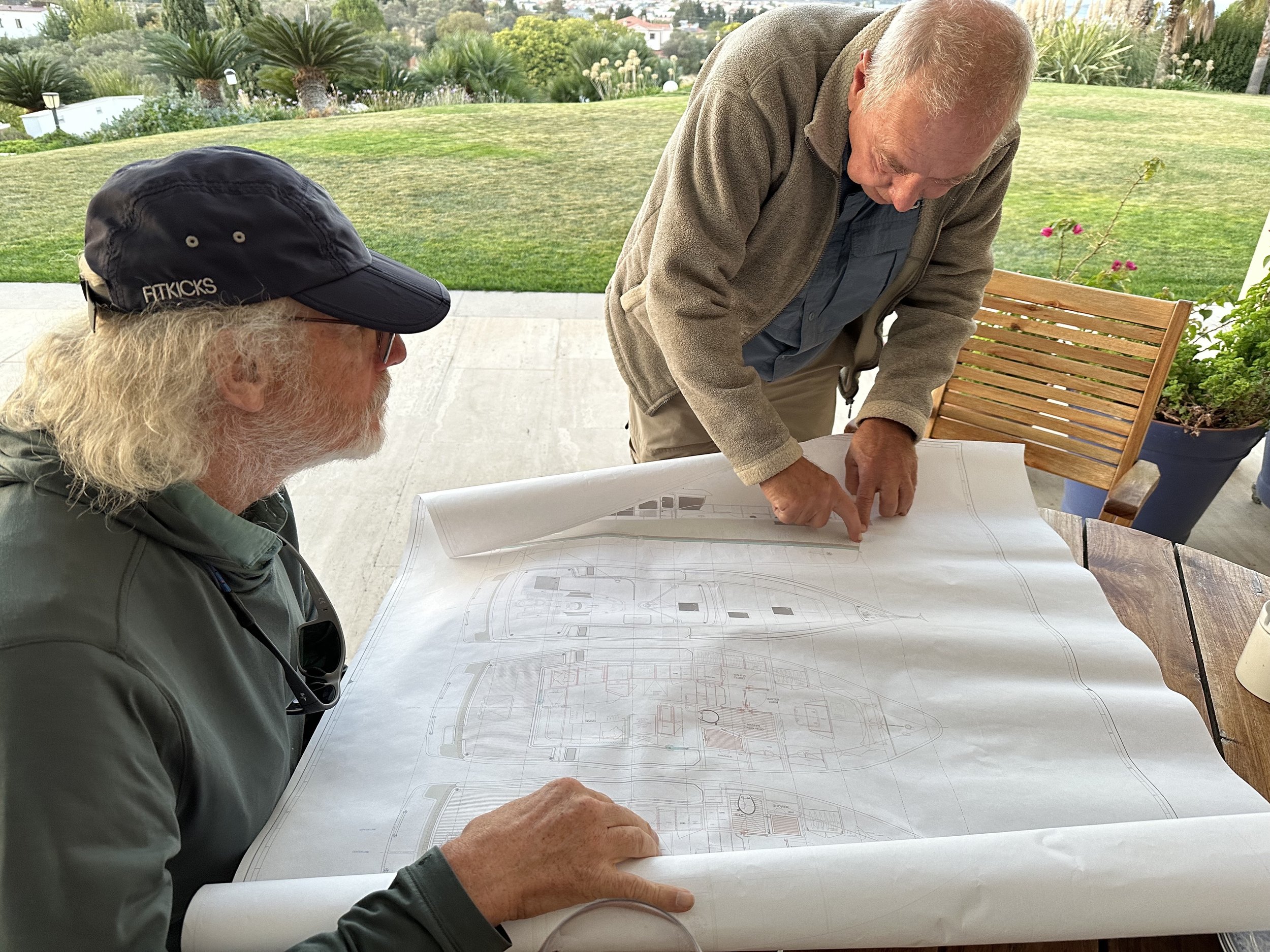
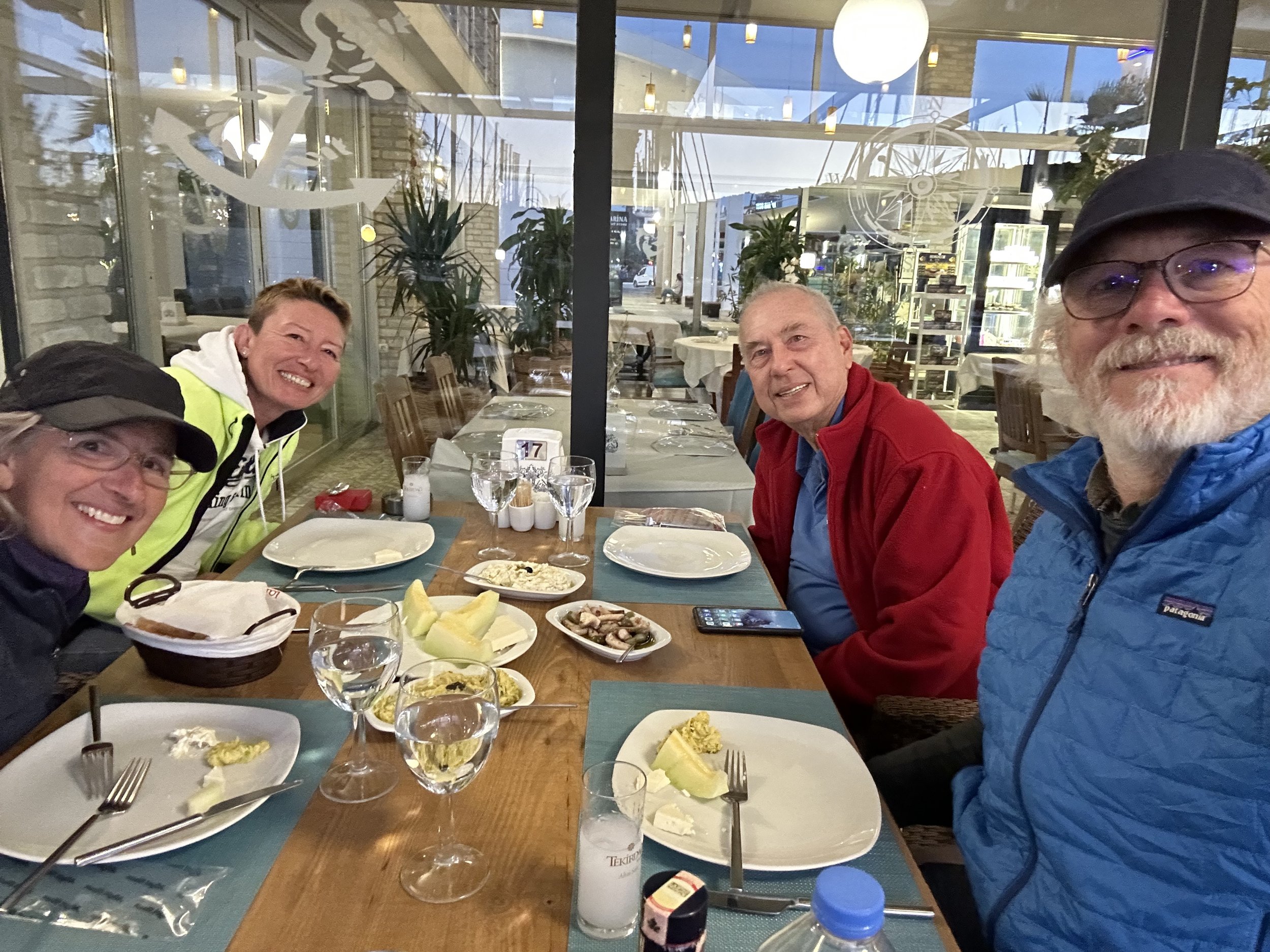
Our final day in Sığacık happened to be Sunday which meant that we had the opportunity to experience the Sığacık Bazaar. The Slow Food movement, that all people can access and enjoy food that is good for them, good for those who grow it and good for the planet, is thriving here. Food stalls open early in the morning and housewives dominate the street with healthy and delicious, locally sourced delicacies prepared with traditional cooking methods.
Each stand held something new and interesting and we wandered aimlessly taking it all in and, of course, sampling as we went. Inside the castle walls we found the farmers market which offered fruits and vegetables, honey, spices, nuts and herbal ointments and tinctures. Further on were handicrafts including knit and crocheted items, hand loomed towels and linens, and beautifully carved utensils and furniture. We were spirited along by the vitality of this small community’s weekly market and it took several hours before we reluctantly tore ourselves away.
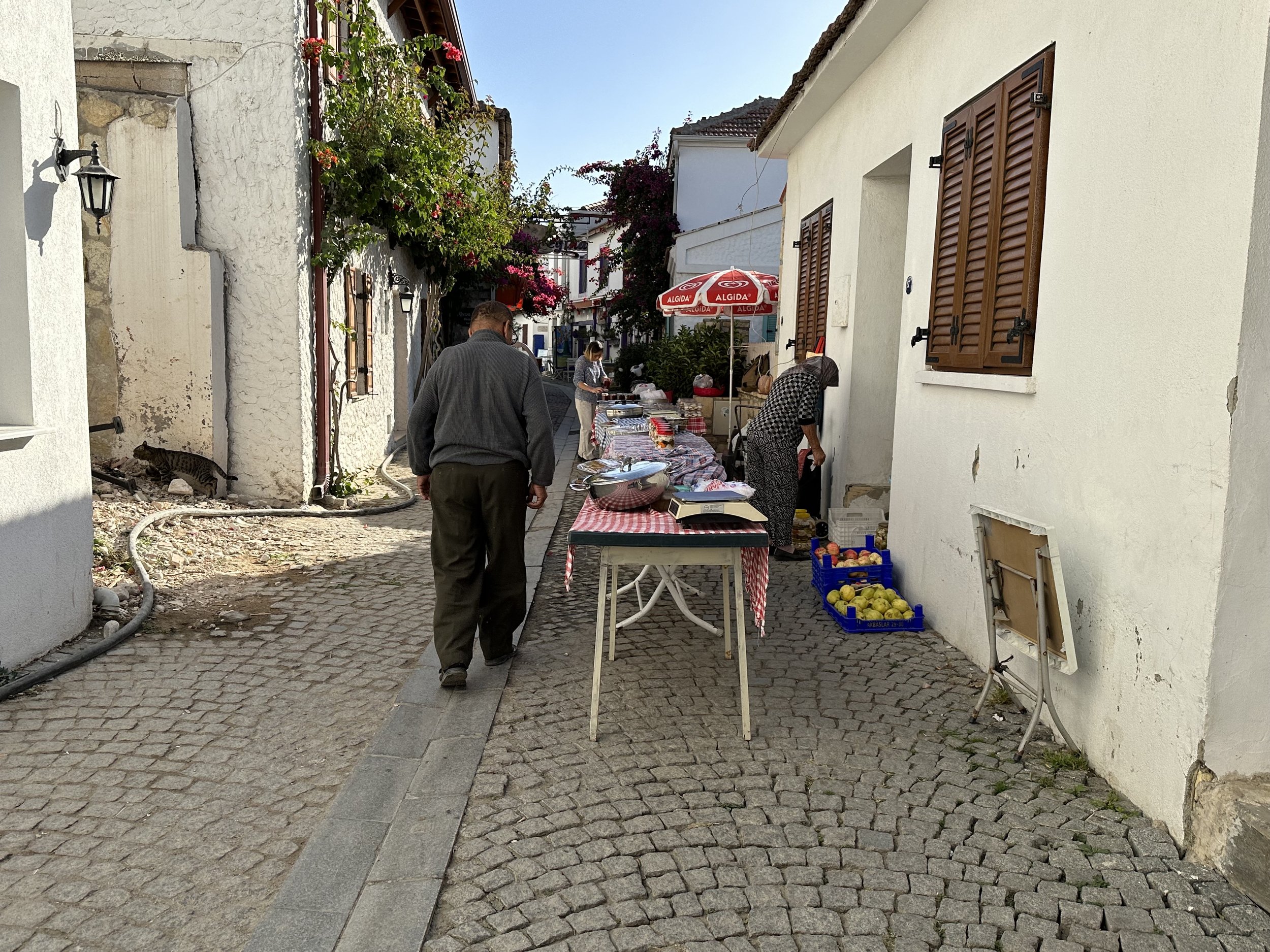
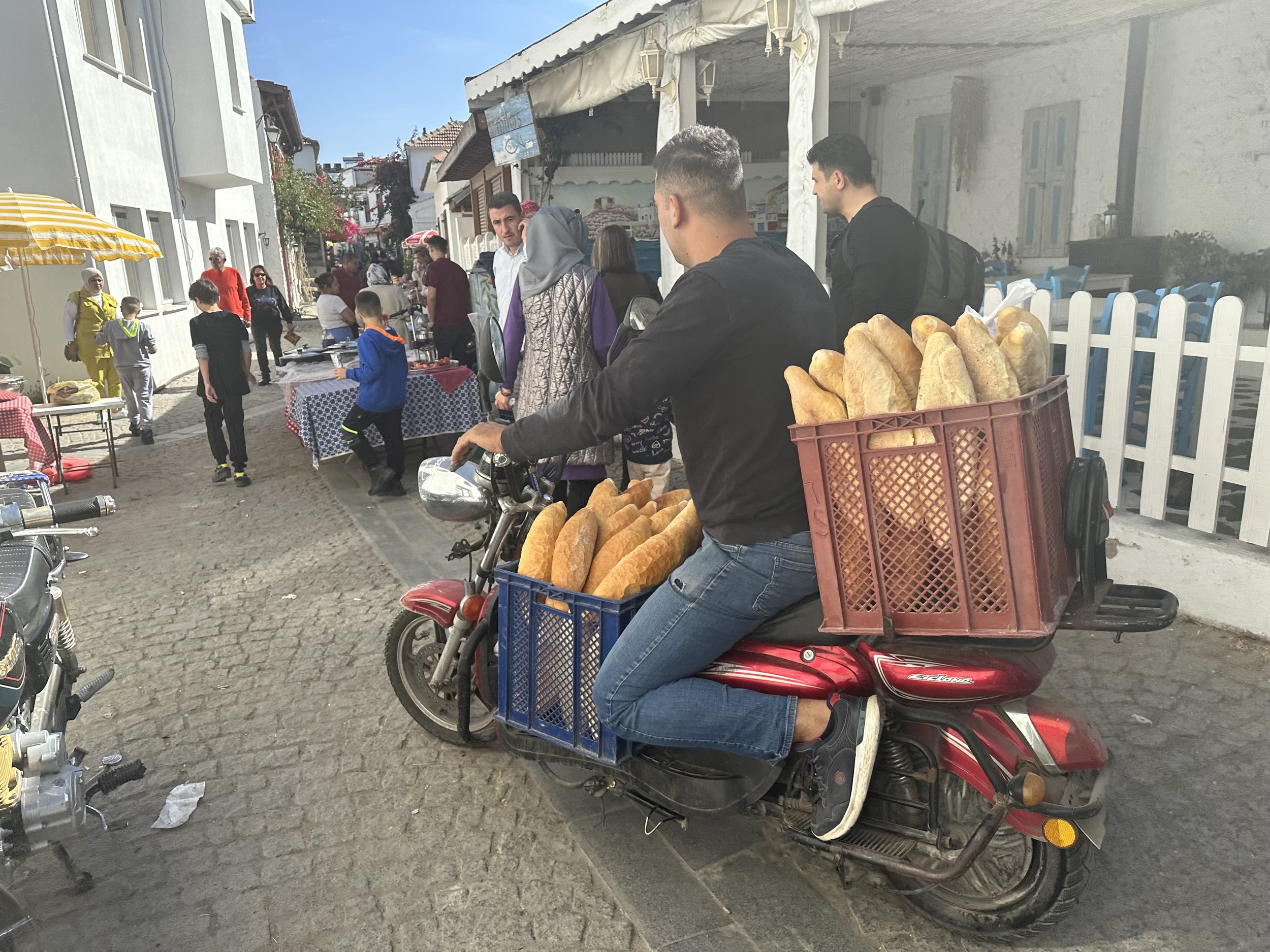
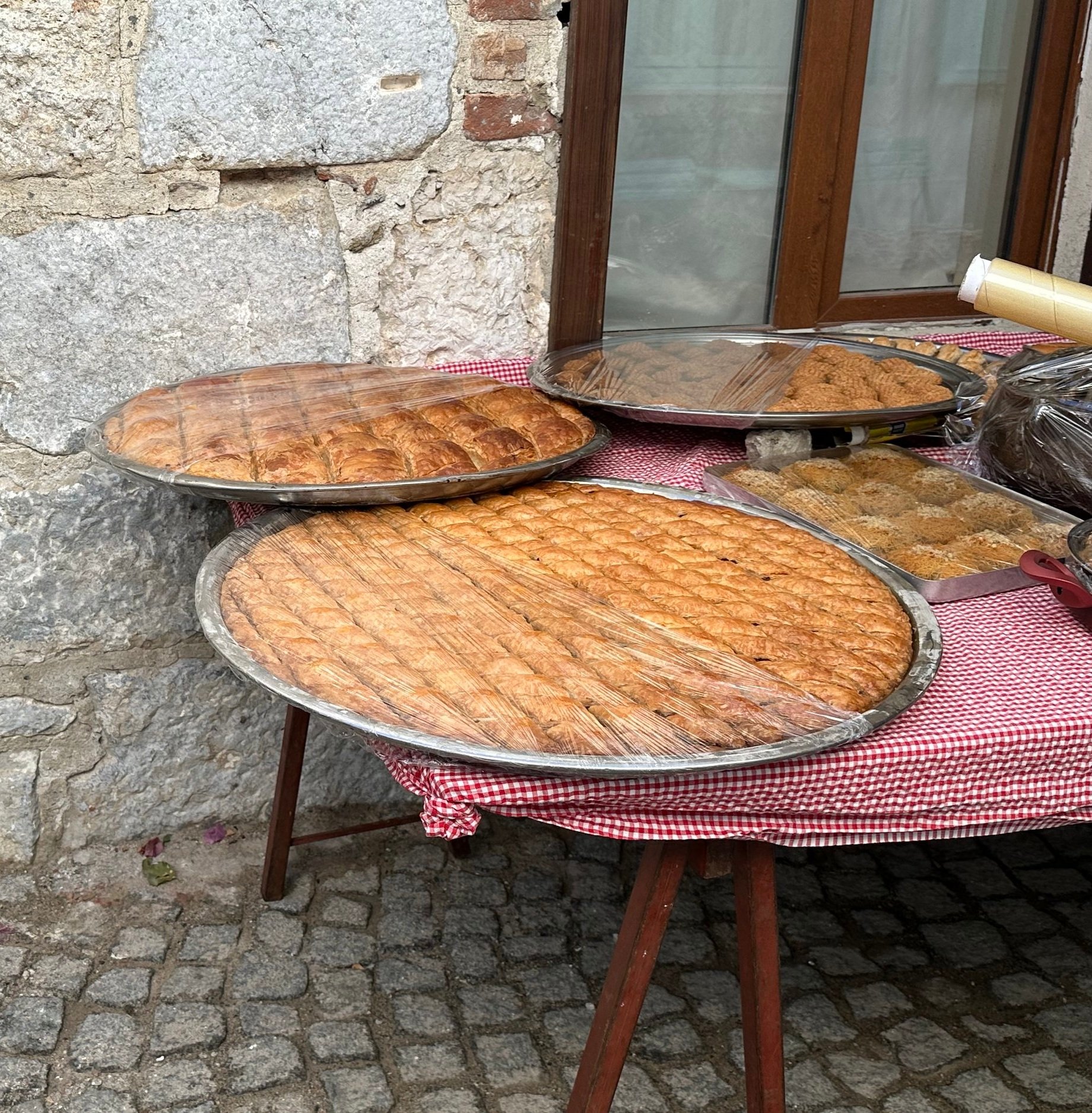
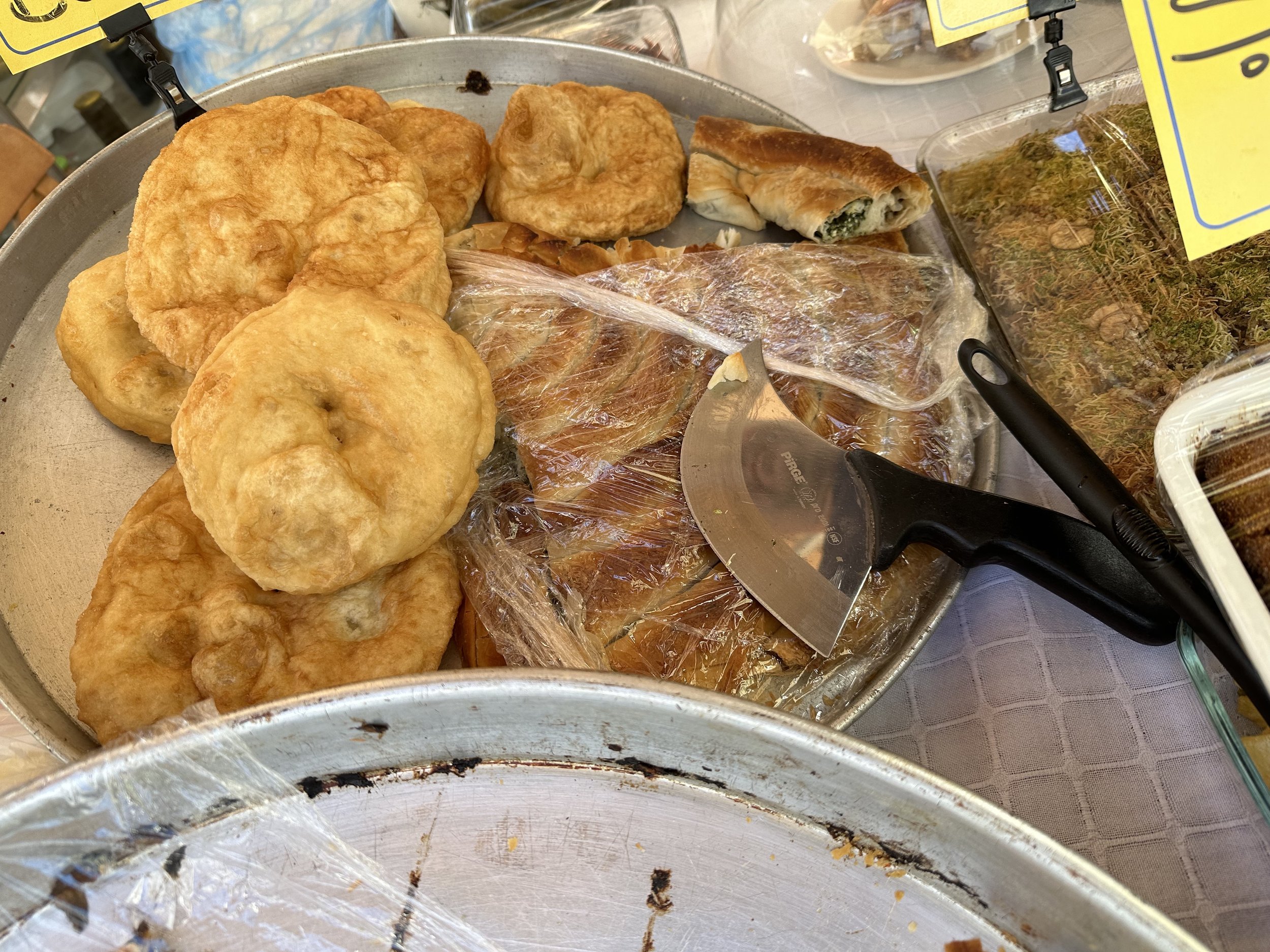

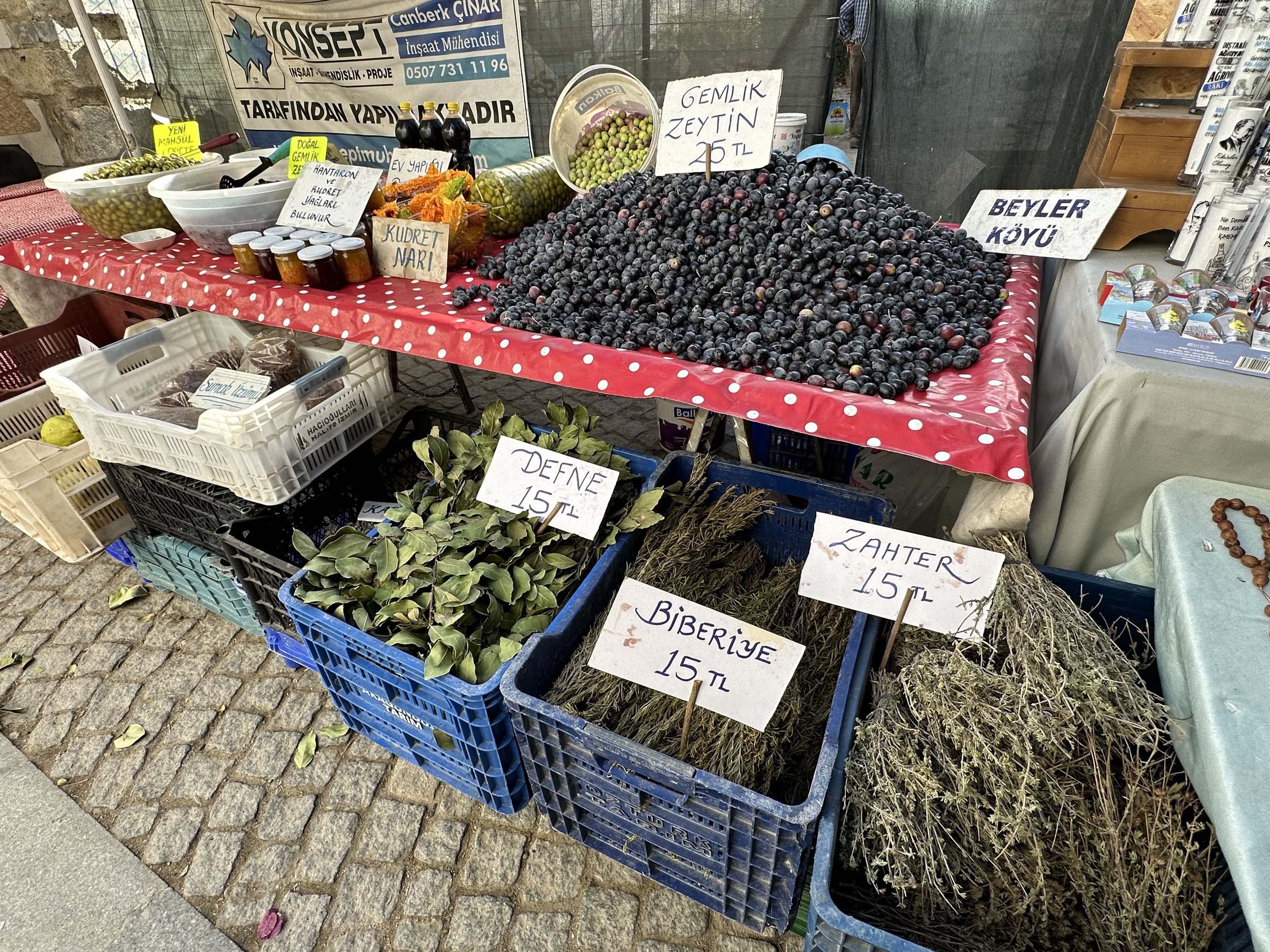
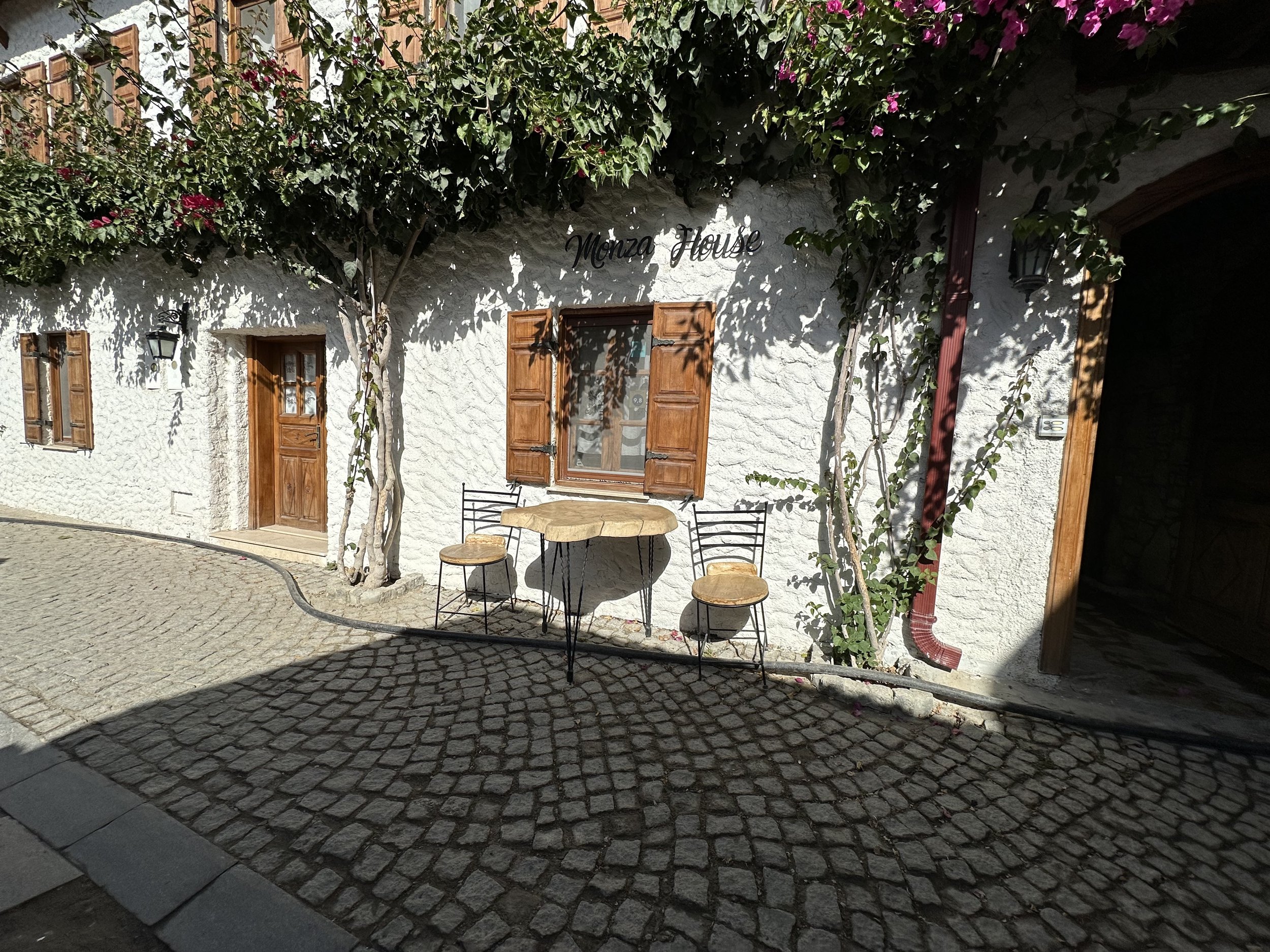
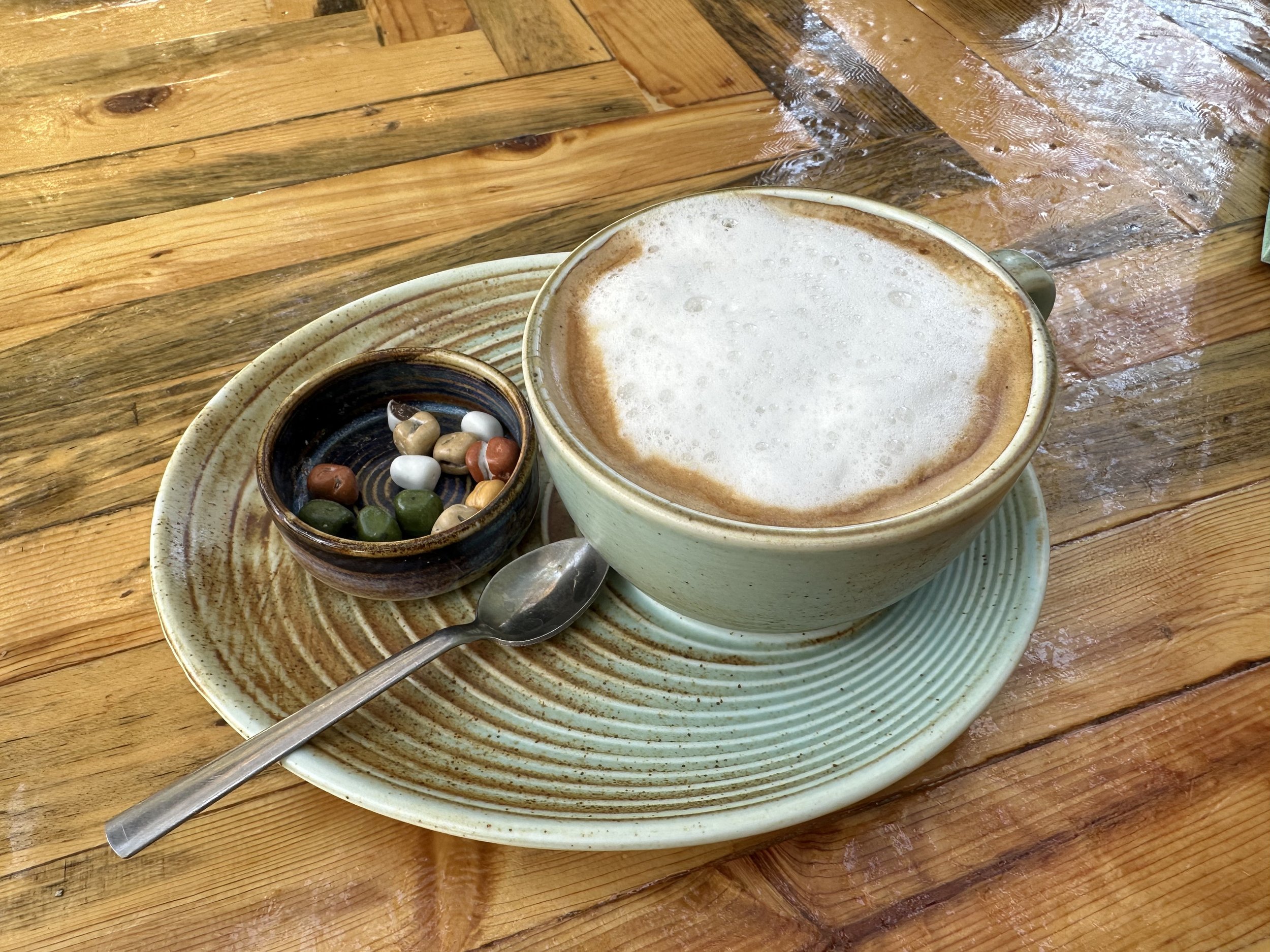



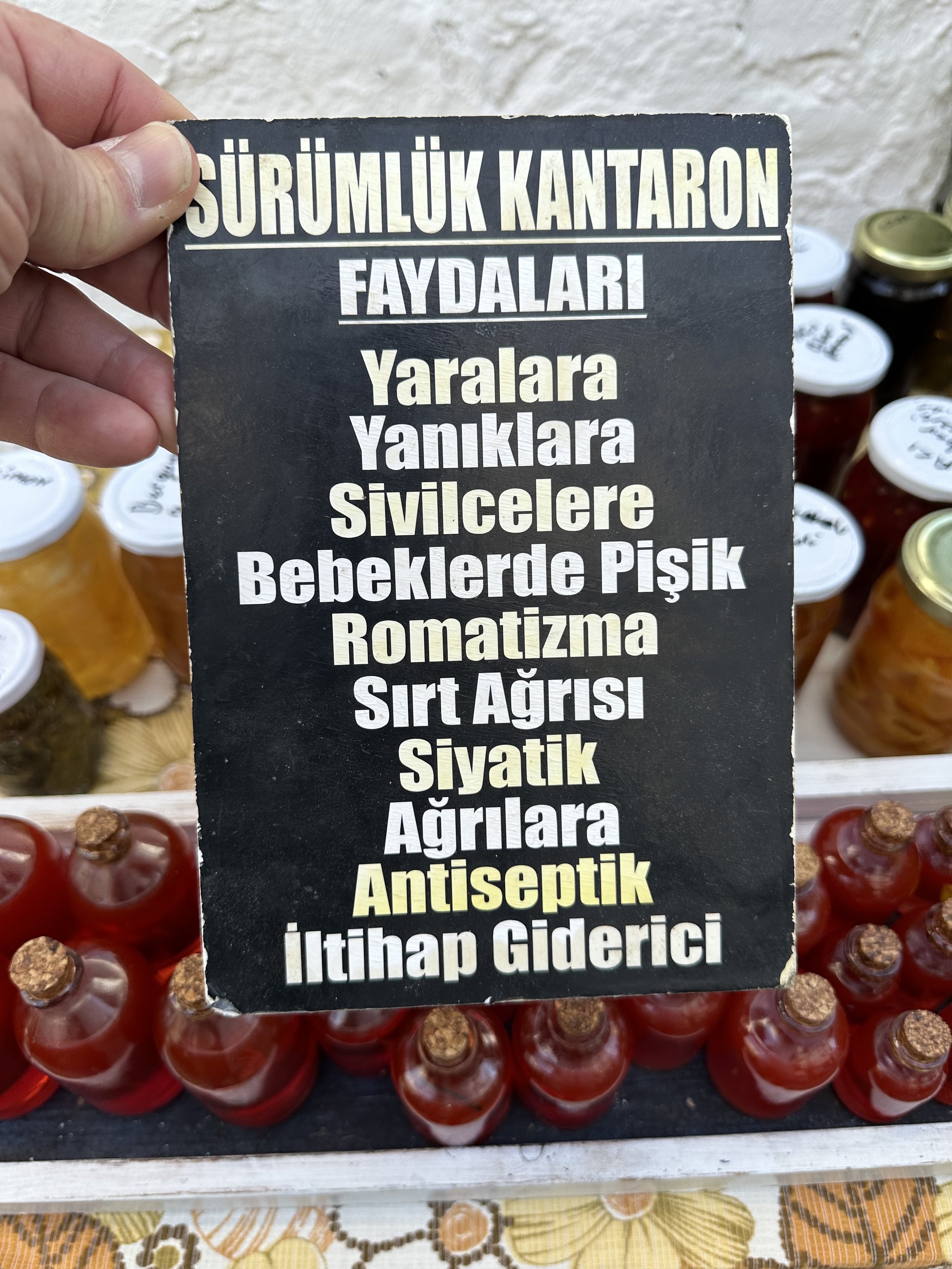
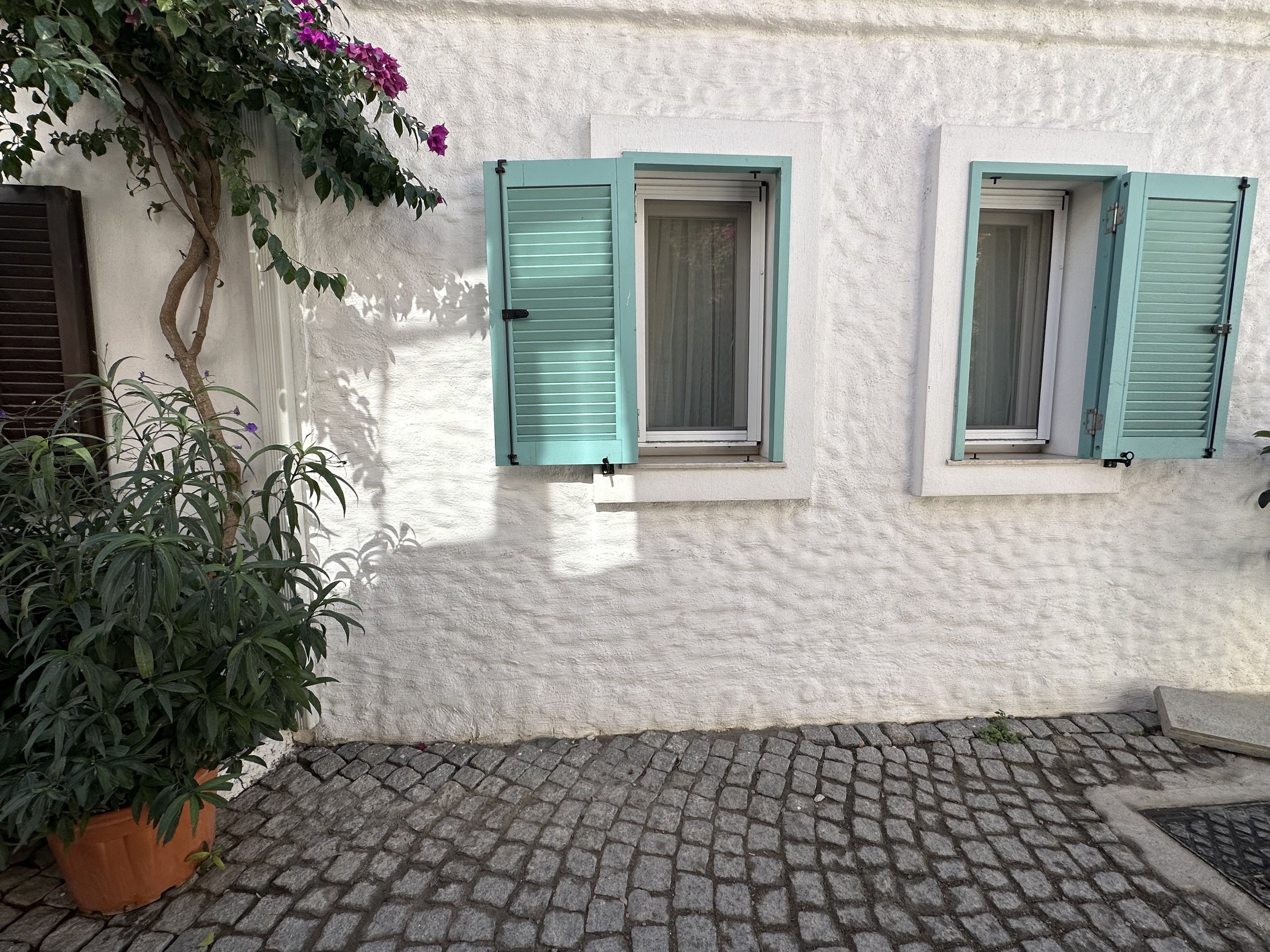

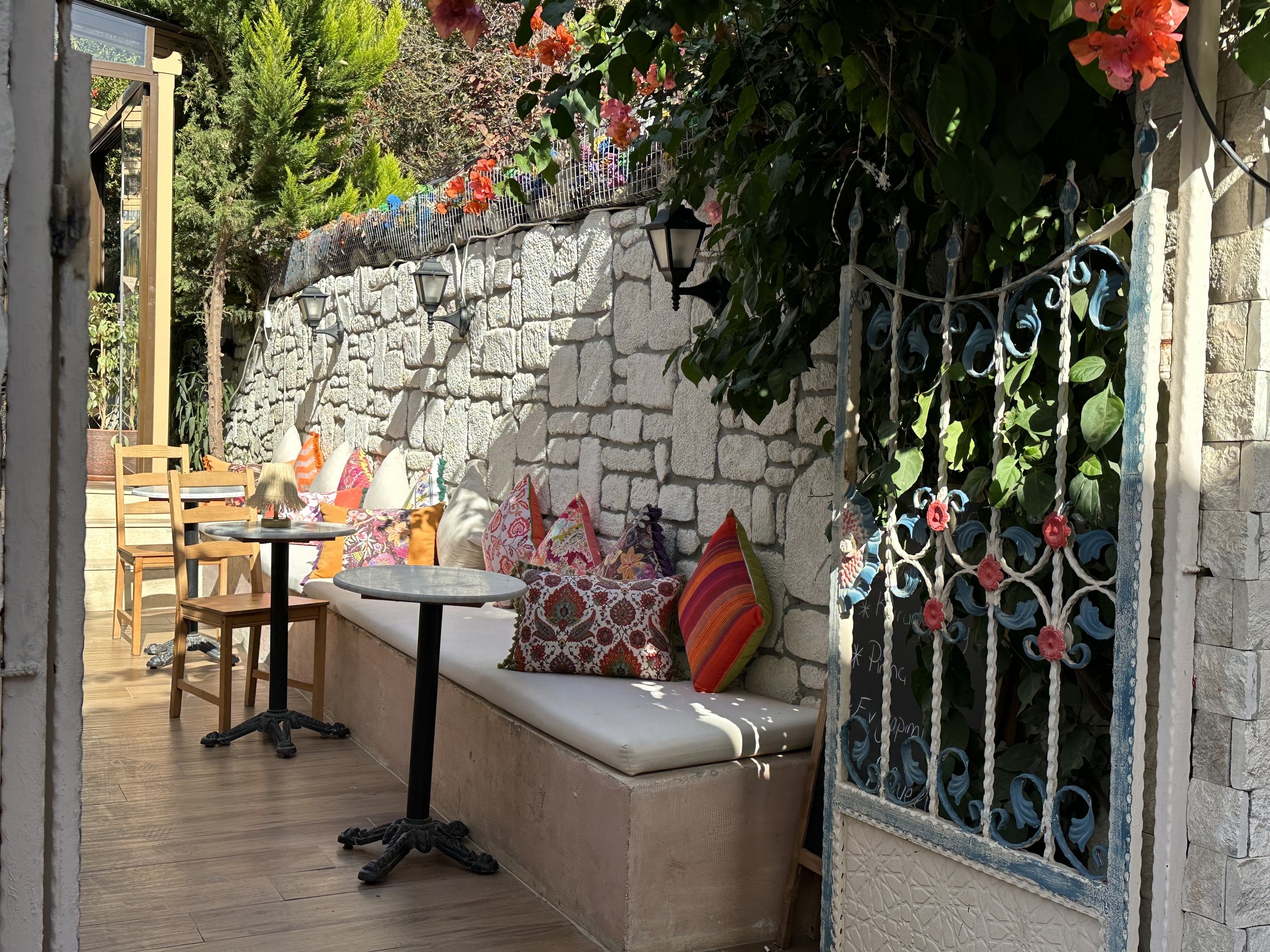
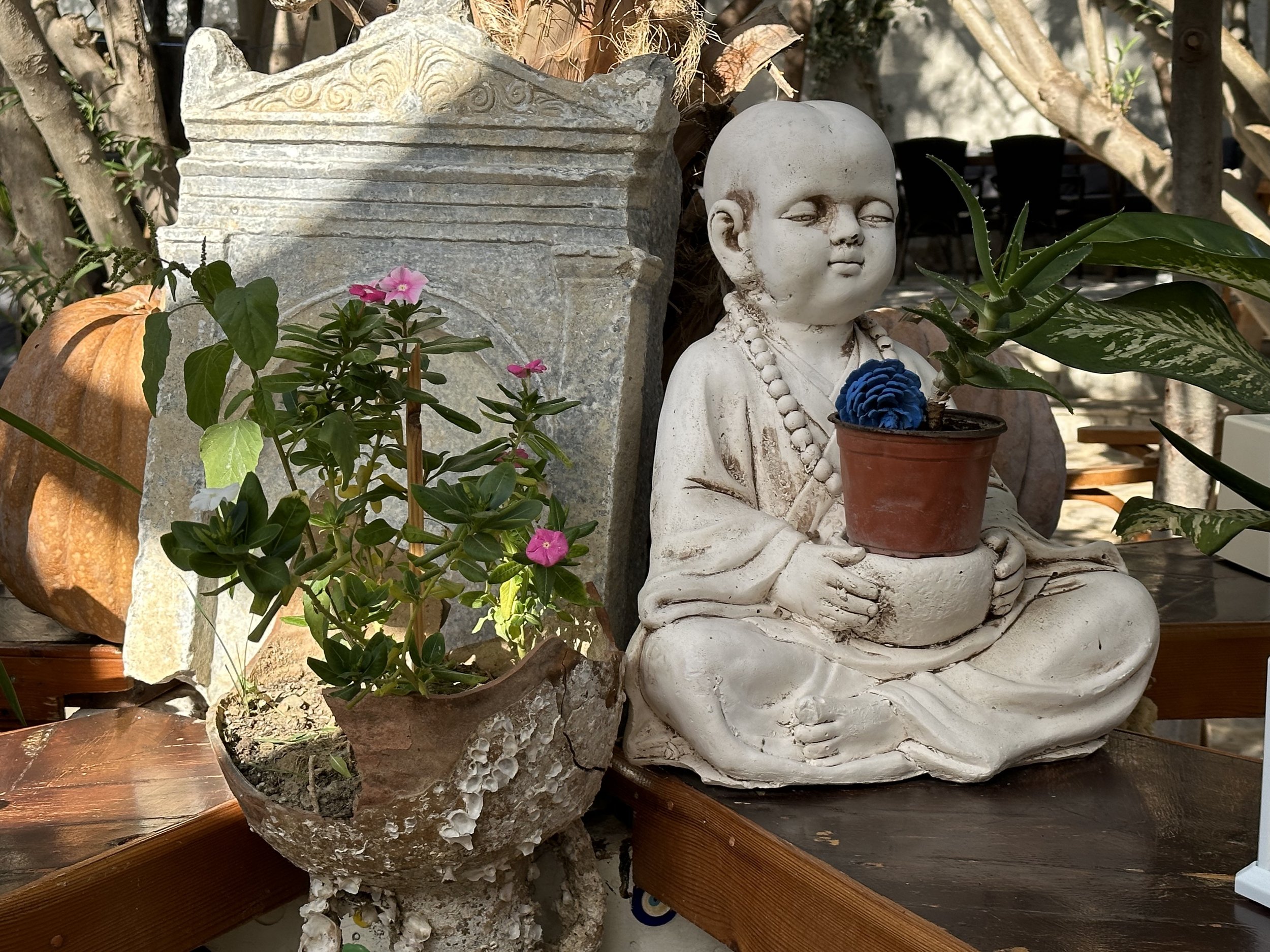
Pepper mounds and honey jugs
We realized that before flying back to the US for a month we needed most of a week in Istanbul to organize for our ultimate move aboard our boat. We turned toward the city rather than take the long route along the coast and the Sea of Marmara. We will just have to explore those areas from Meraki - not an unwelcome thought!
We spent one night along the way in what we thought was your typical hotel room which could have been located in any city in the world. There were definitely some oddities though - most curiously the oversized glass wall between the bedroom and the shower?!? Nevertheless, the next day we drove into Istanbul and directly to the factory to see the progress on our boat.
To our immense pleasure we arrived the day our boat would be moved out of the factory and into the test tank. I can’t explain the depth of joy we felt at seeing Meraki floating at last.
She floats!
Full Circle


